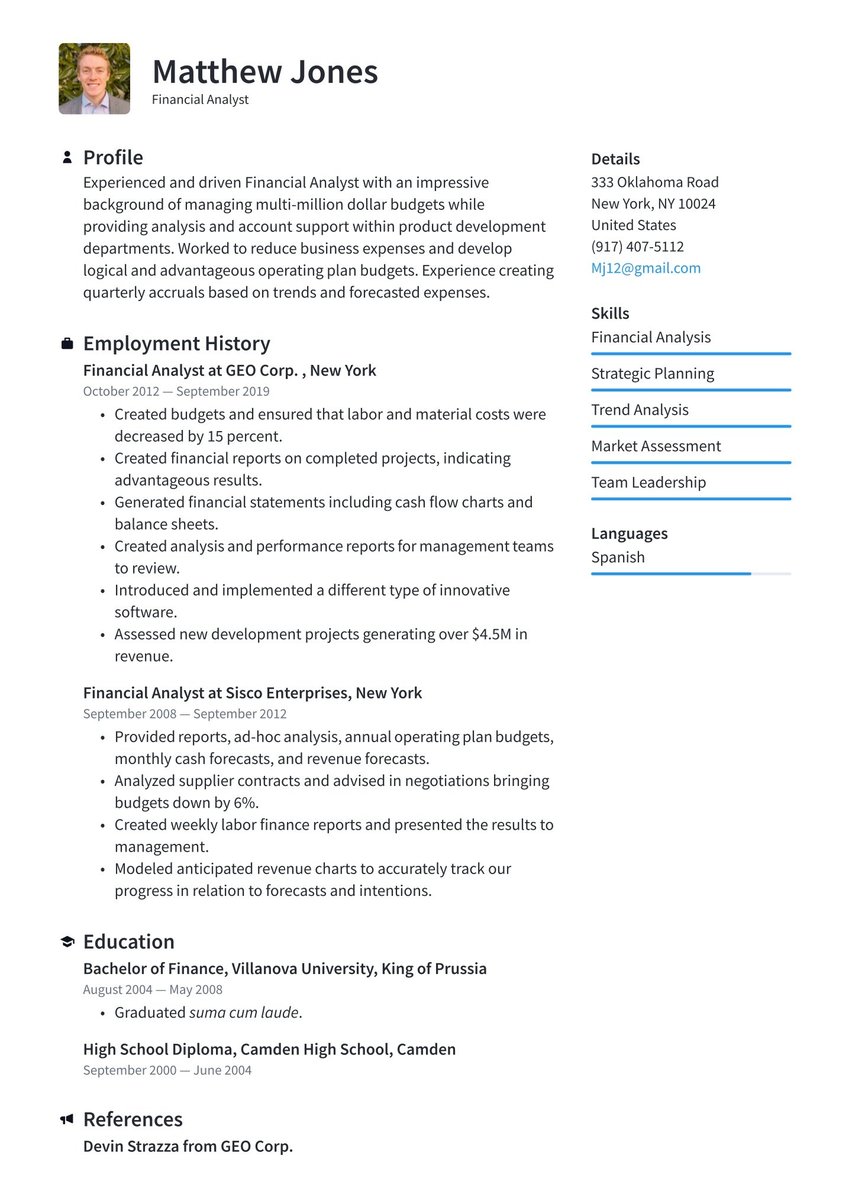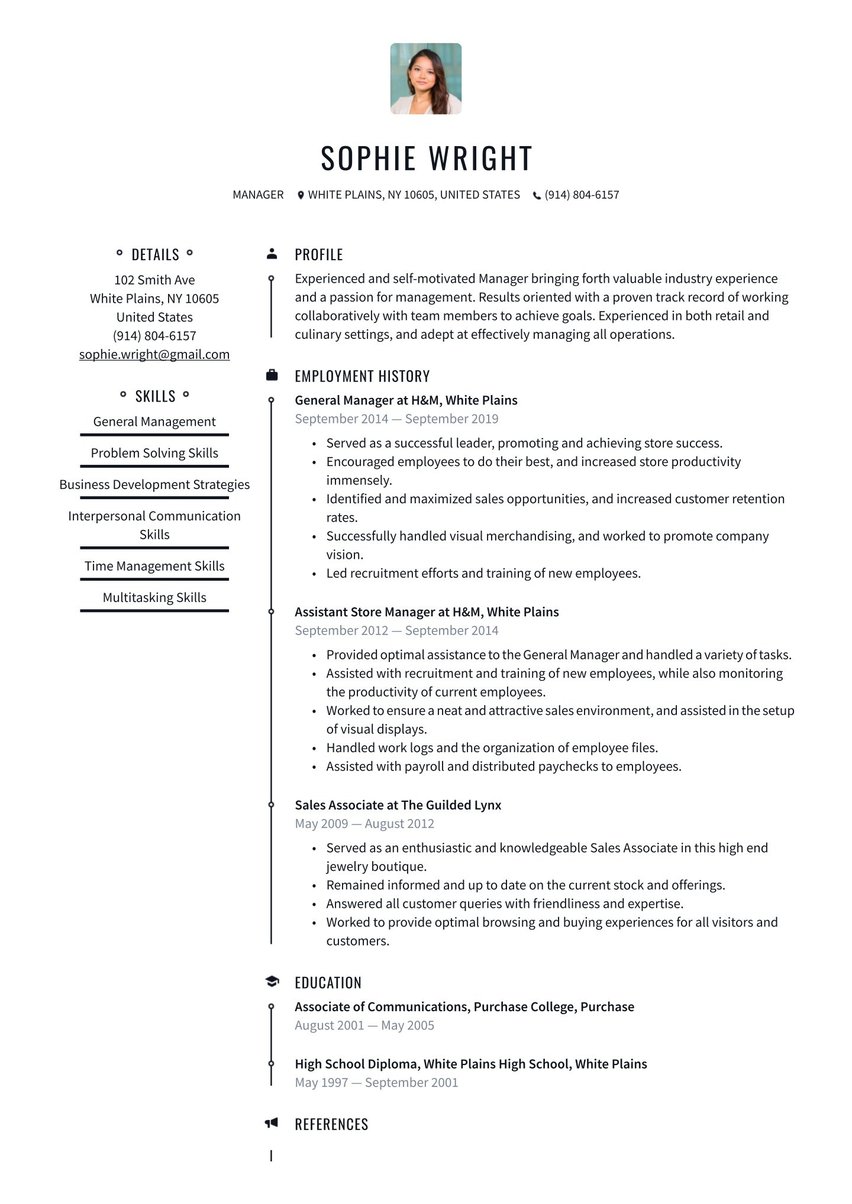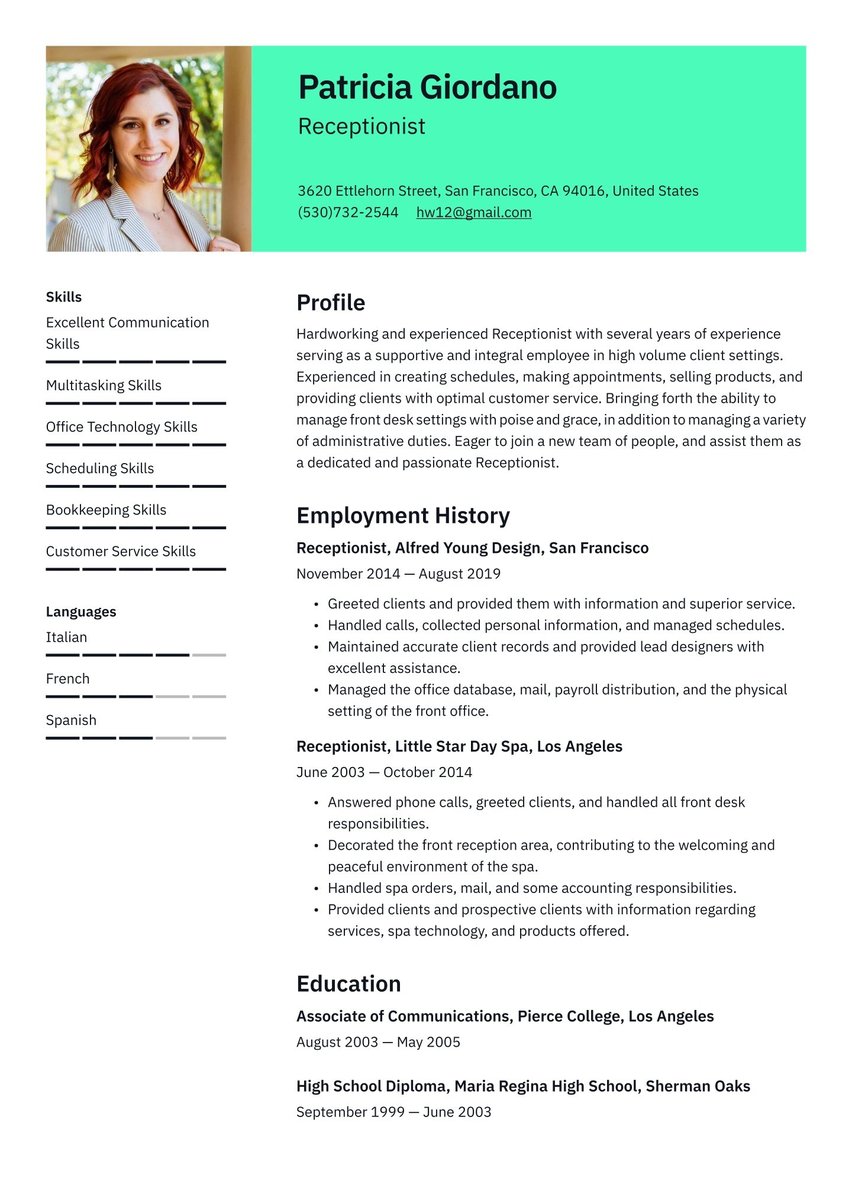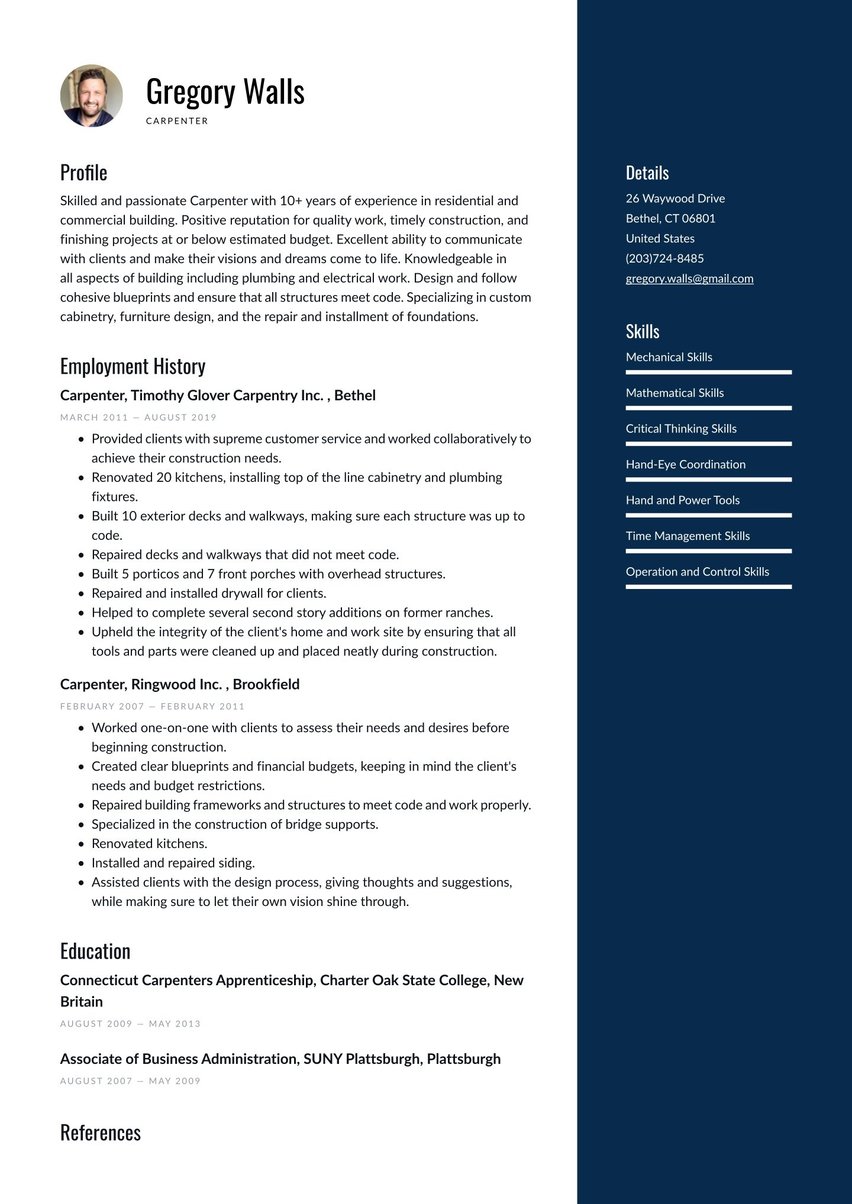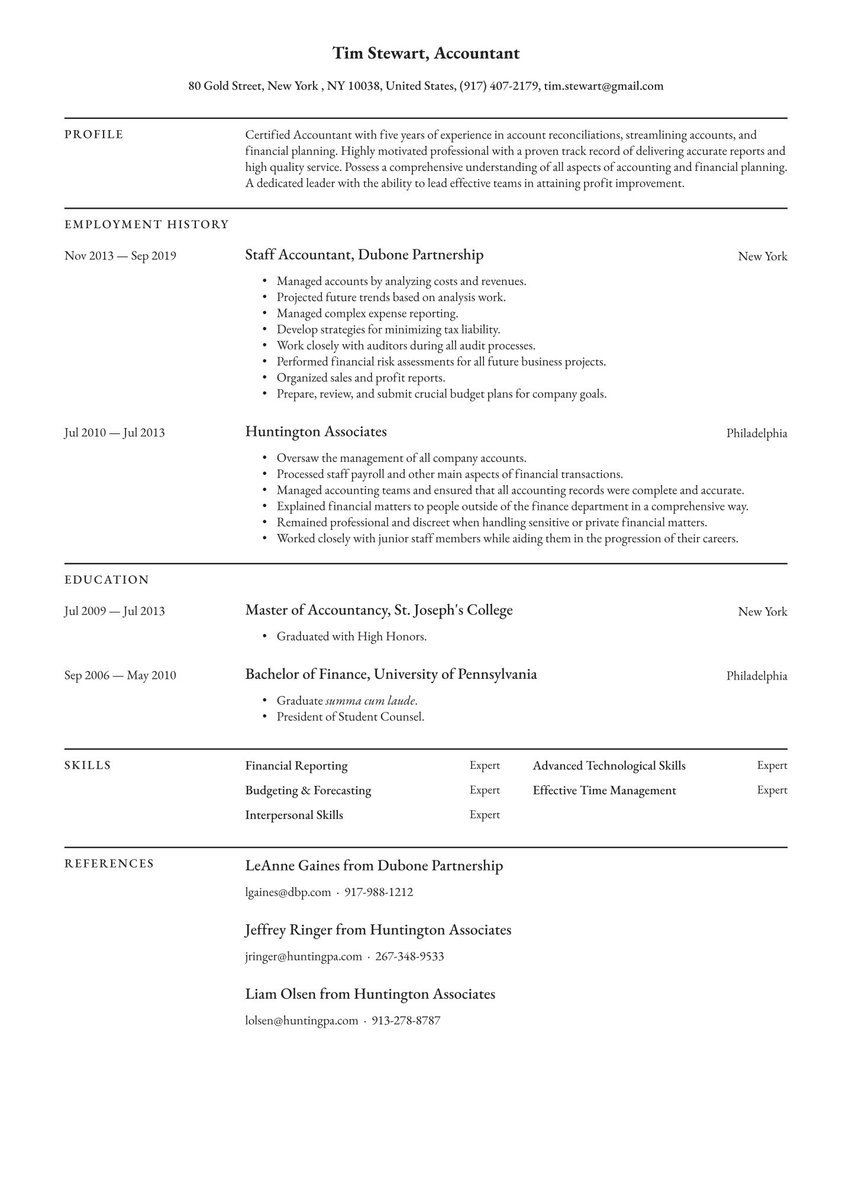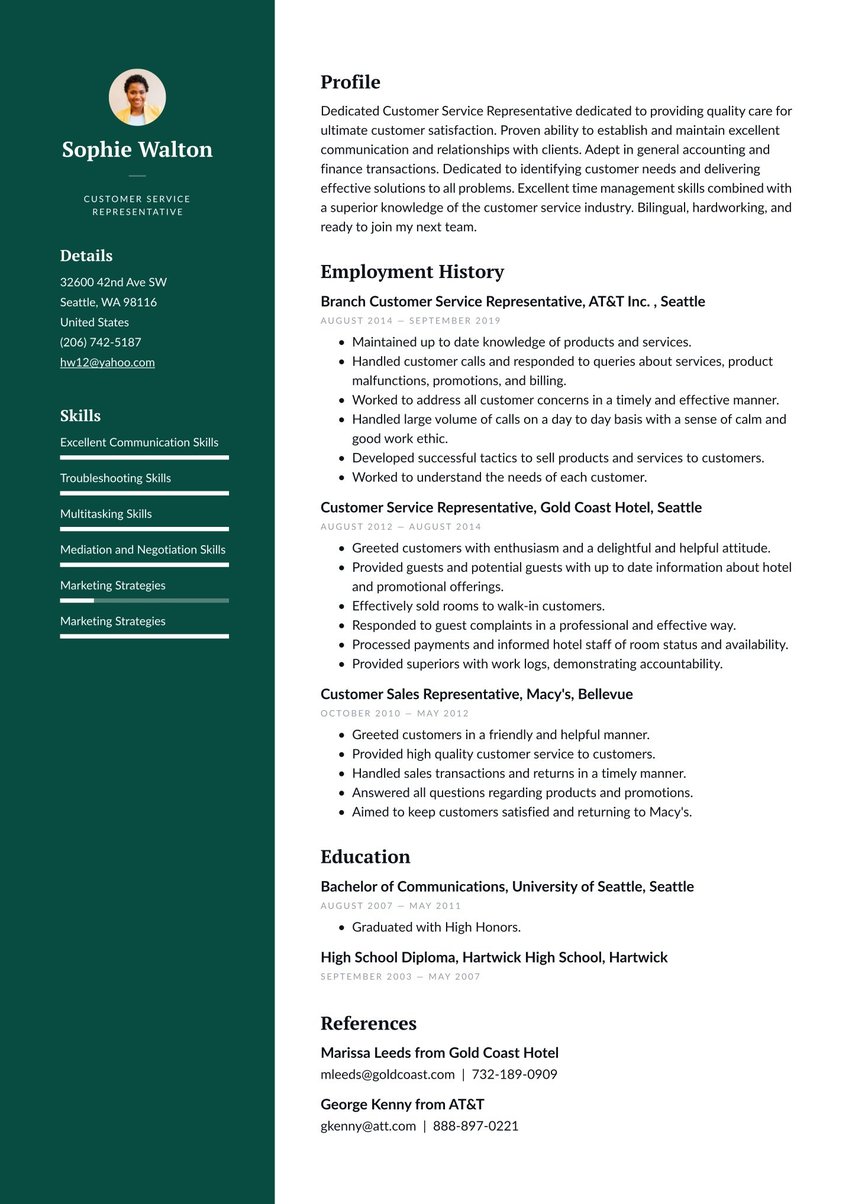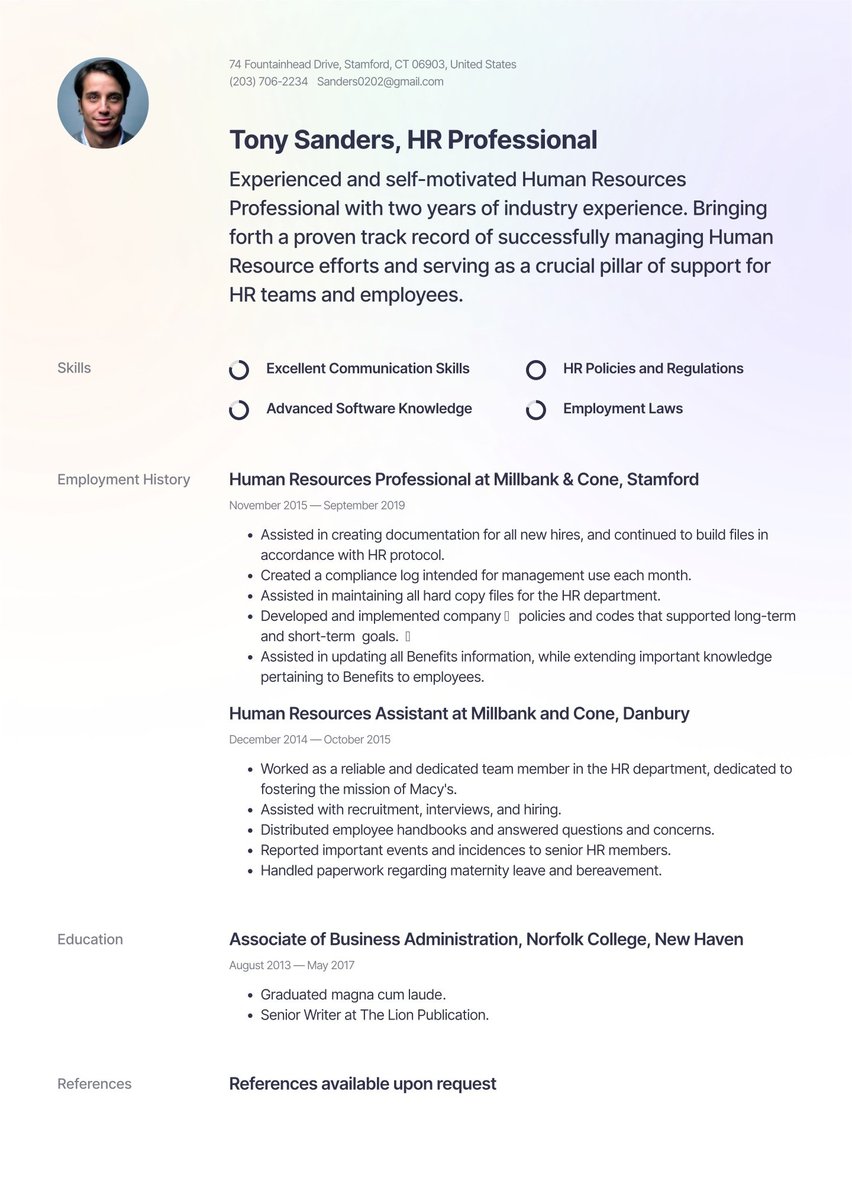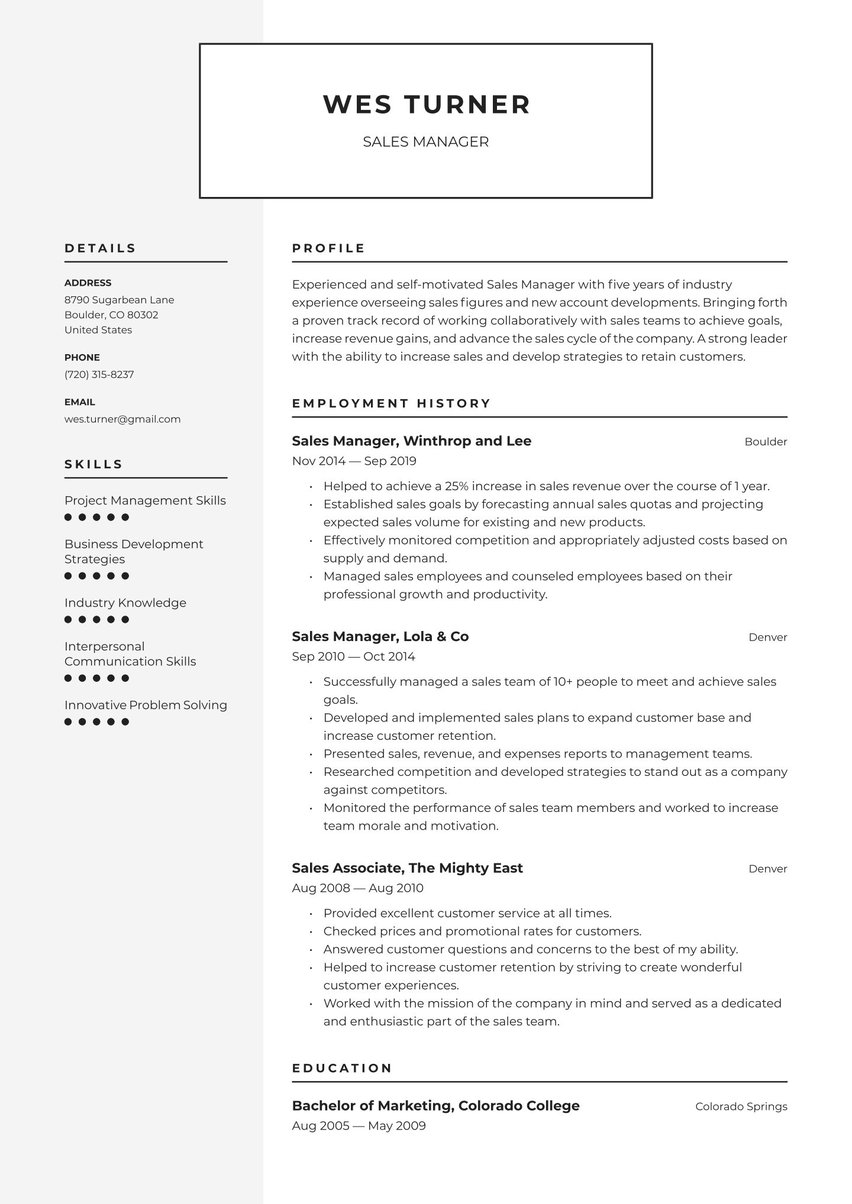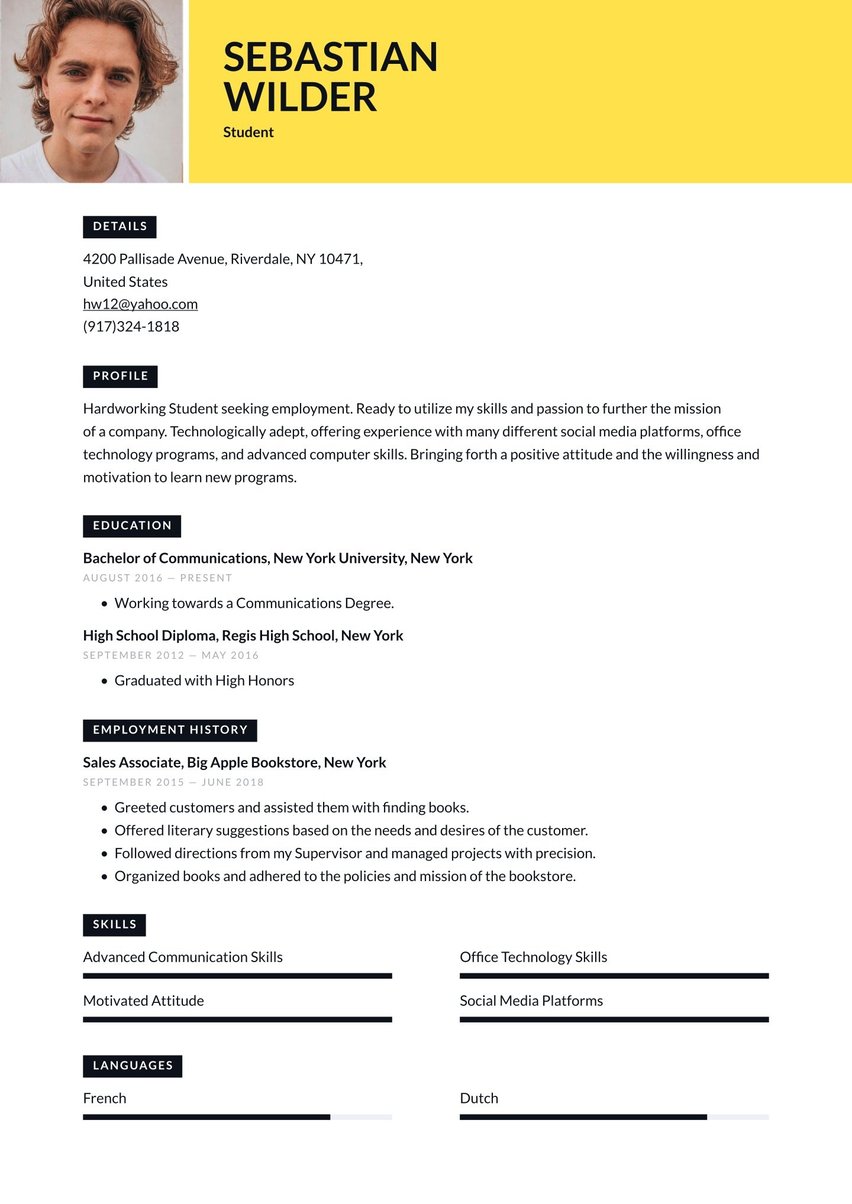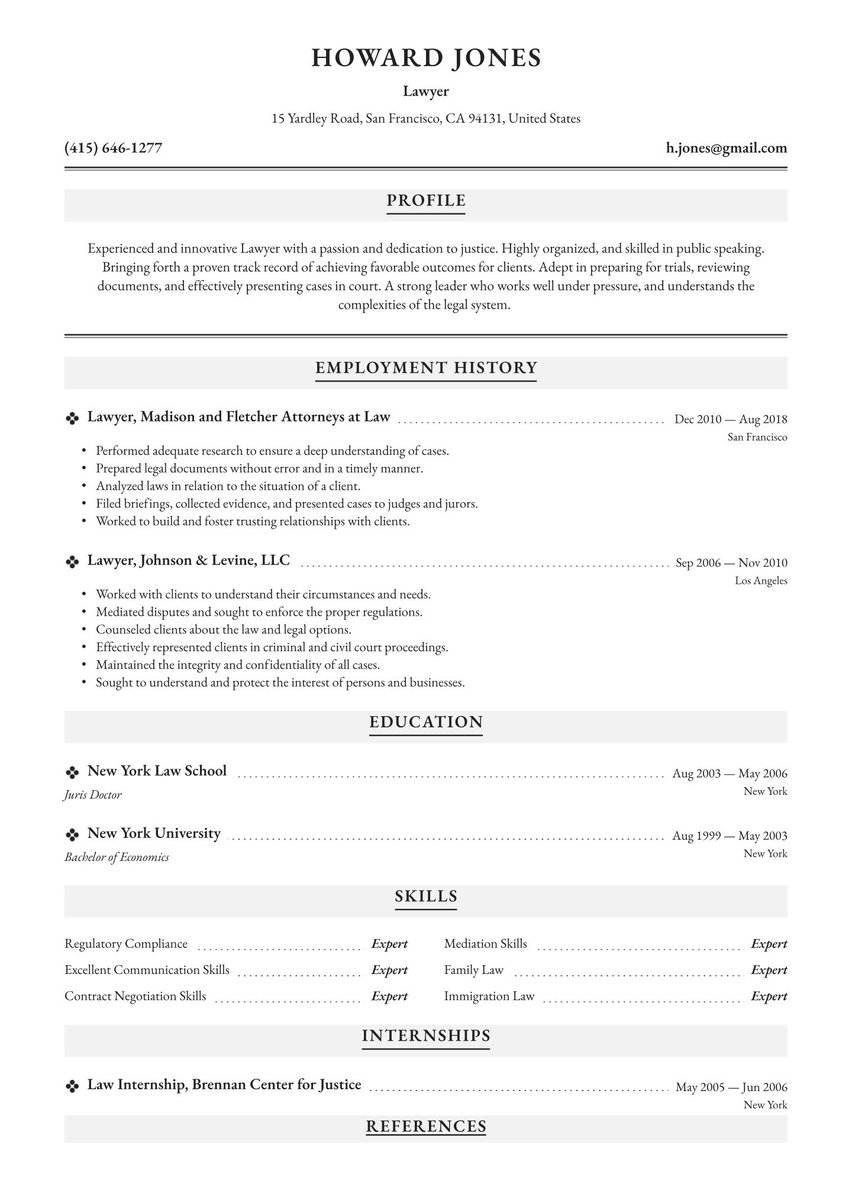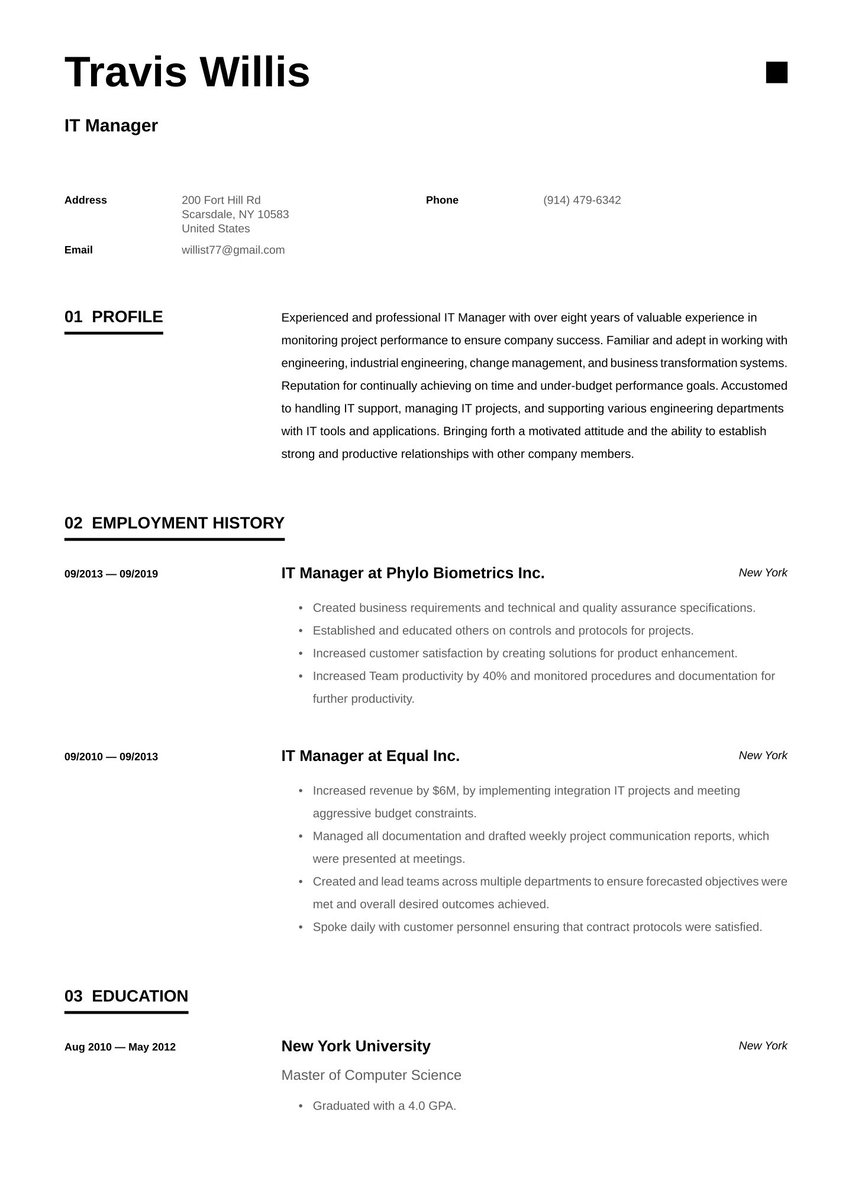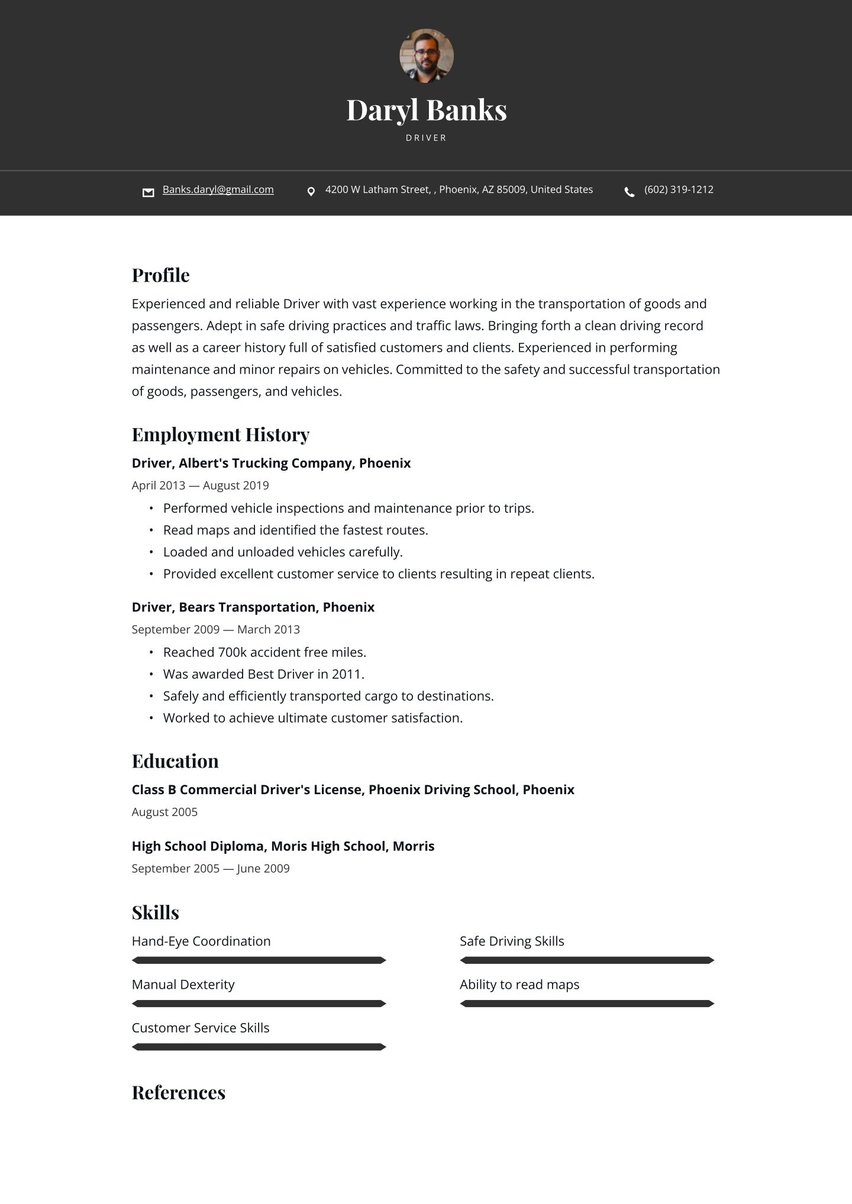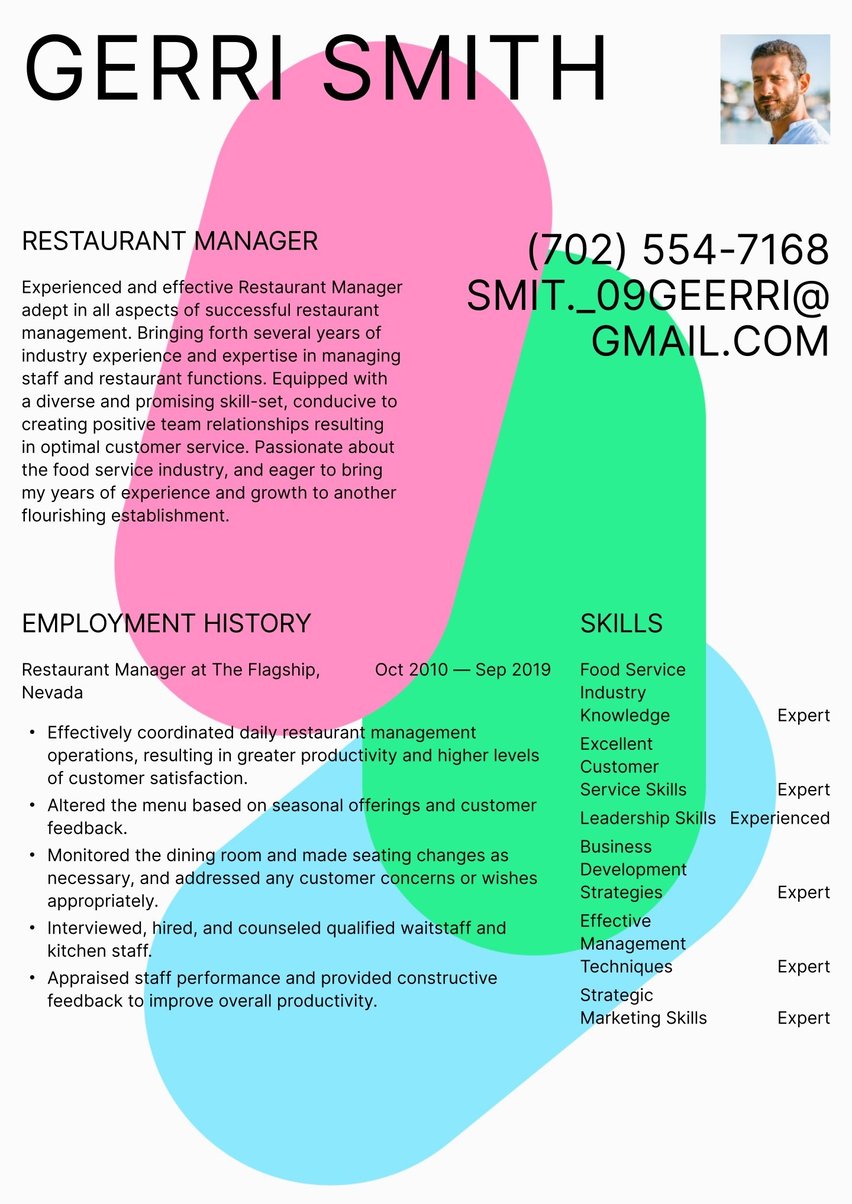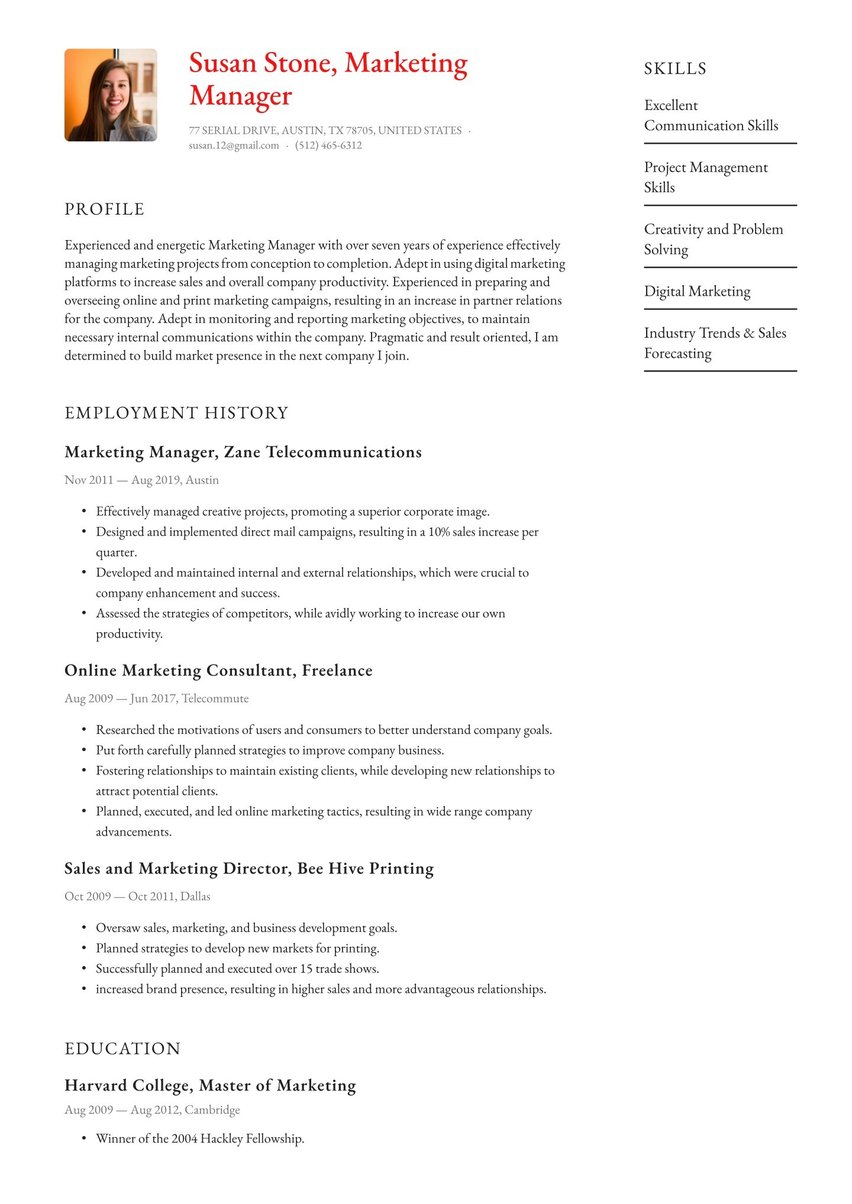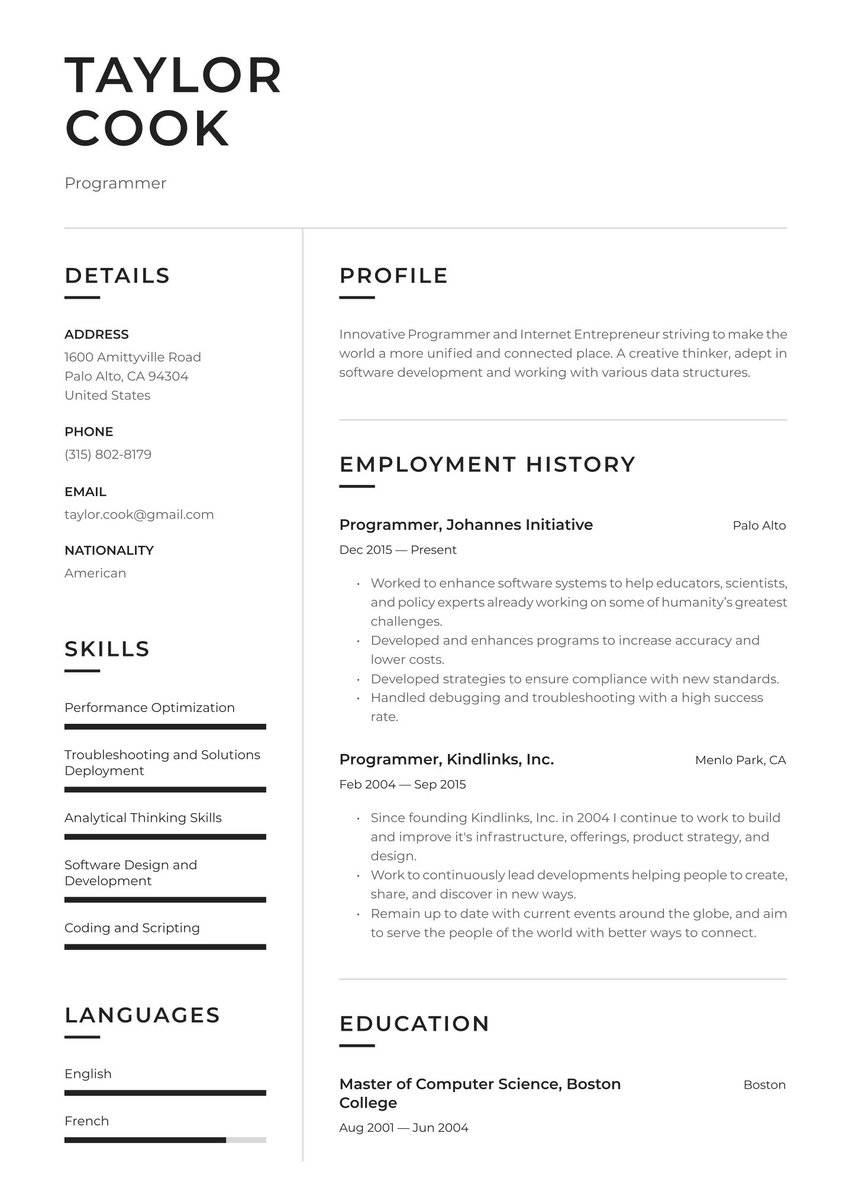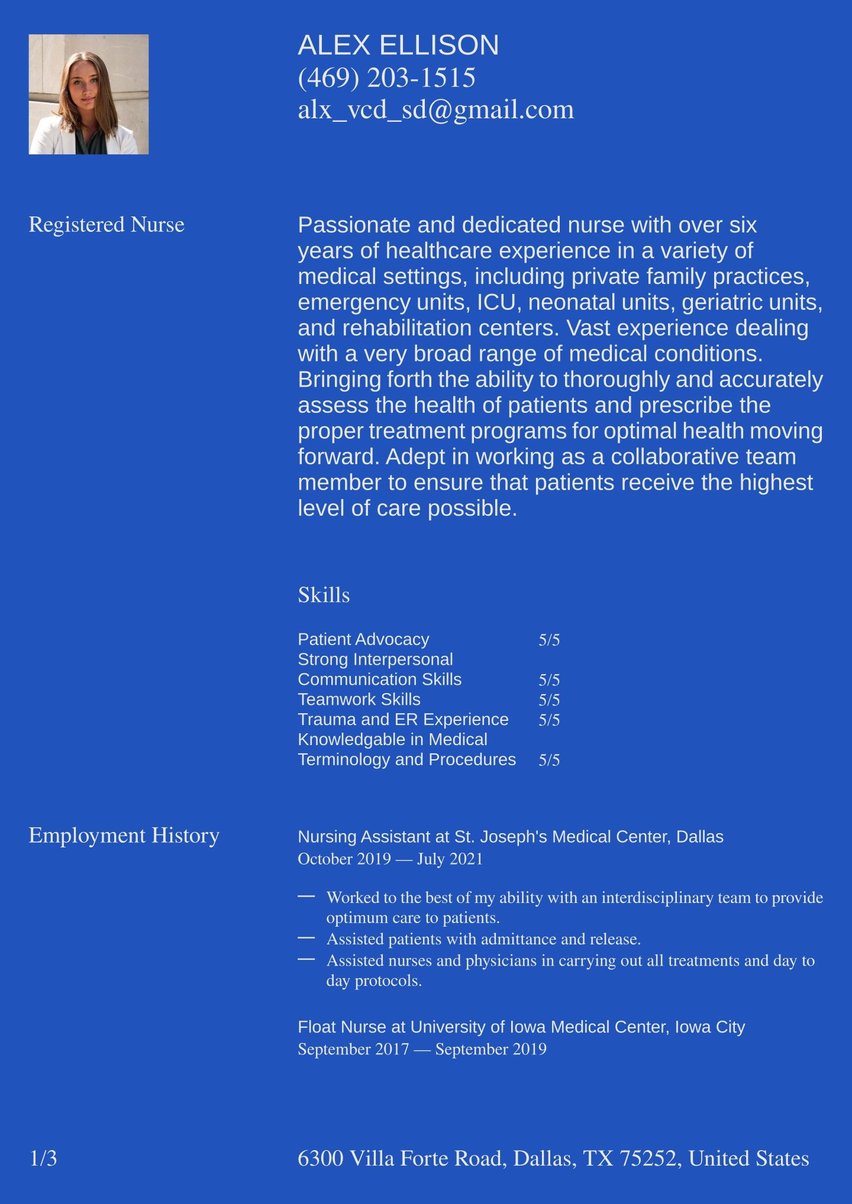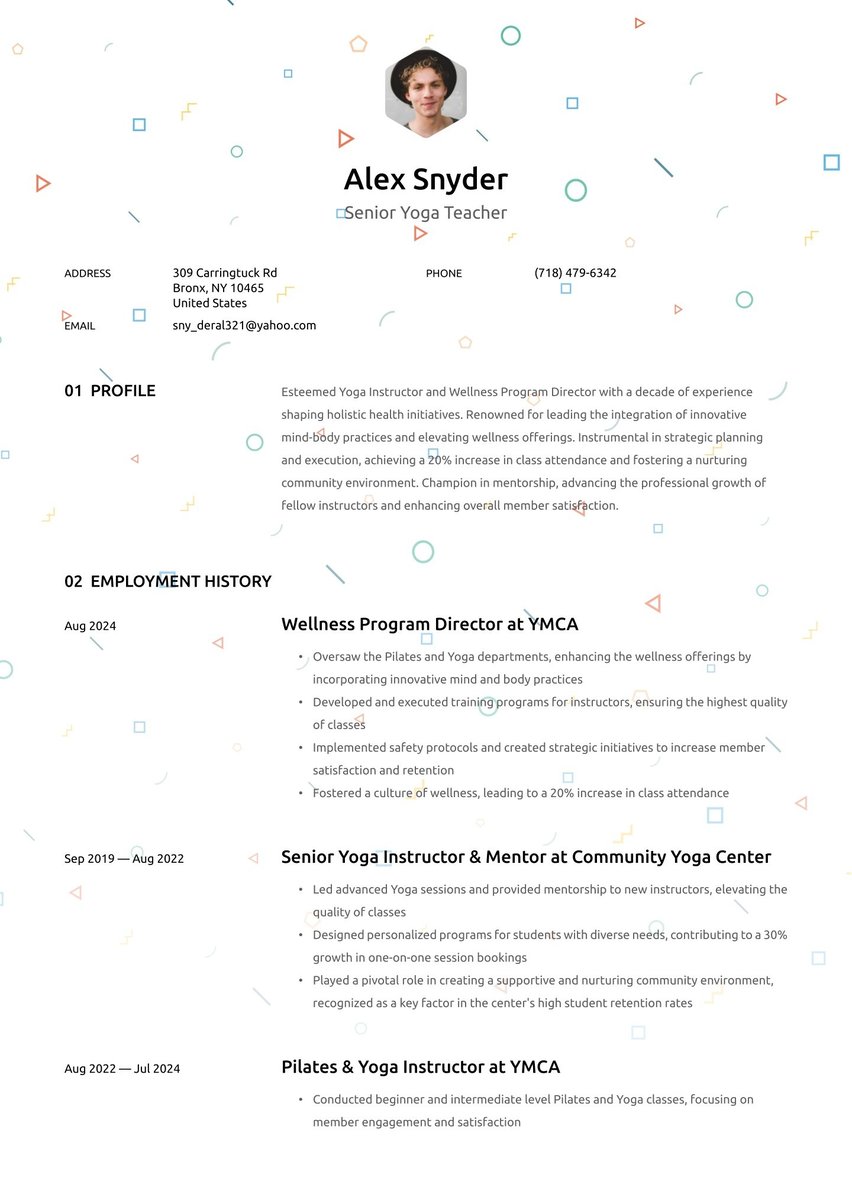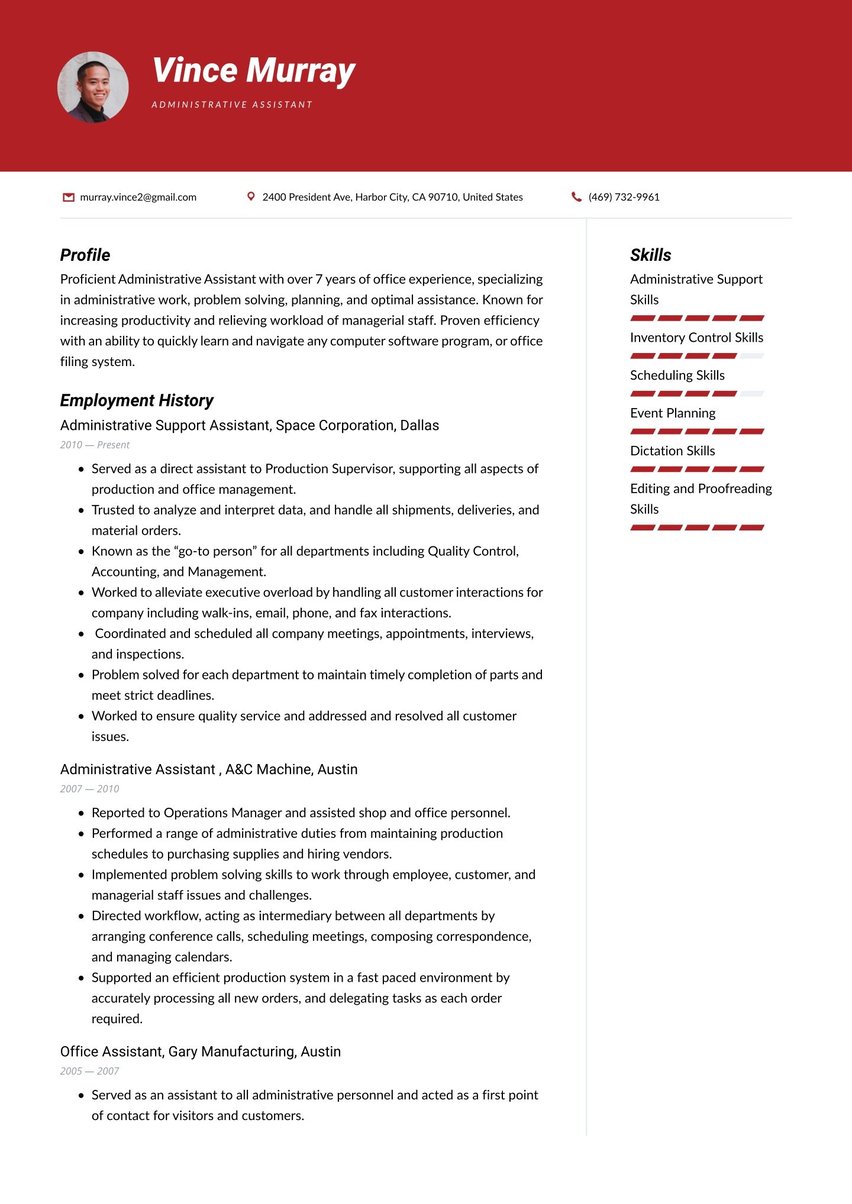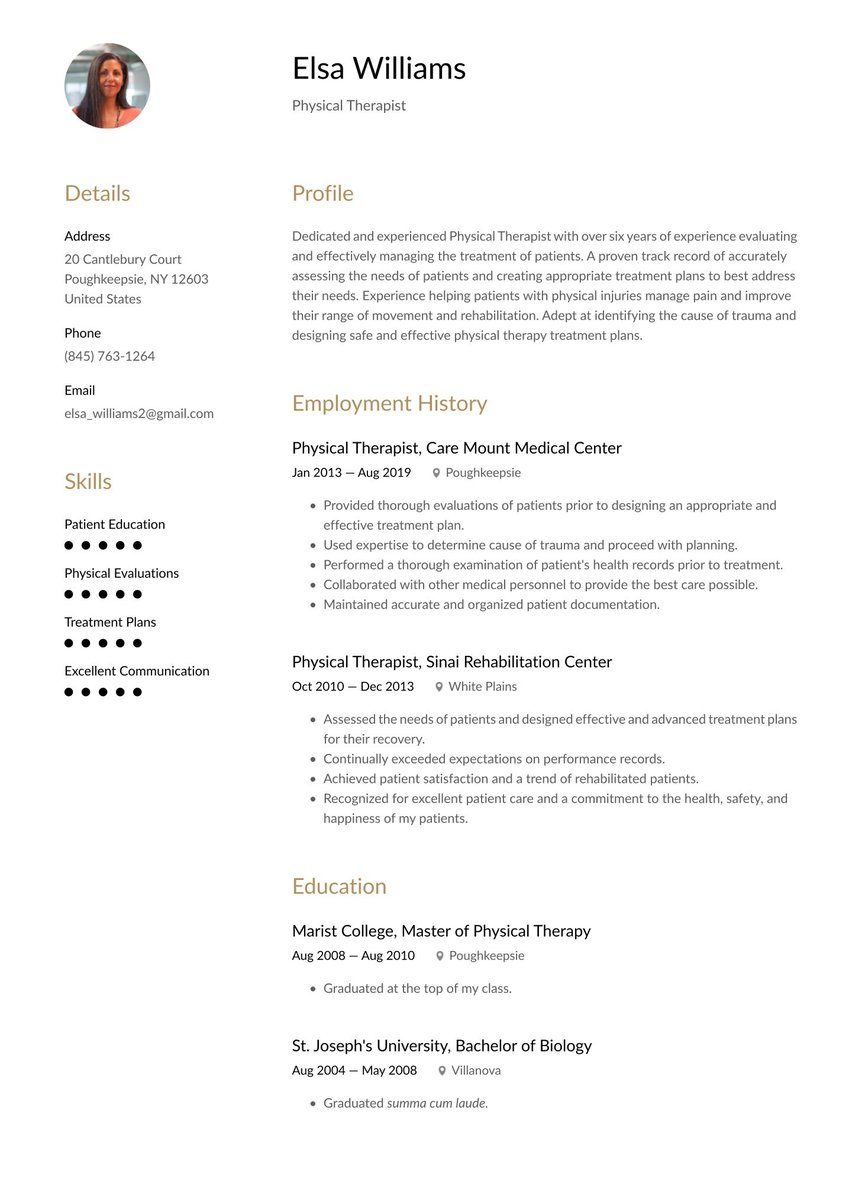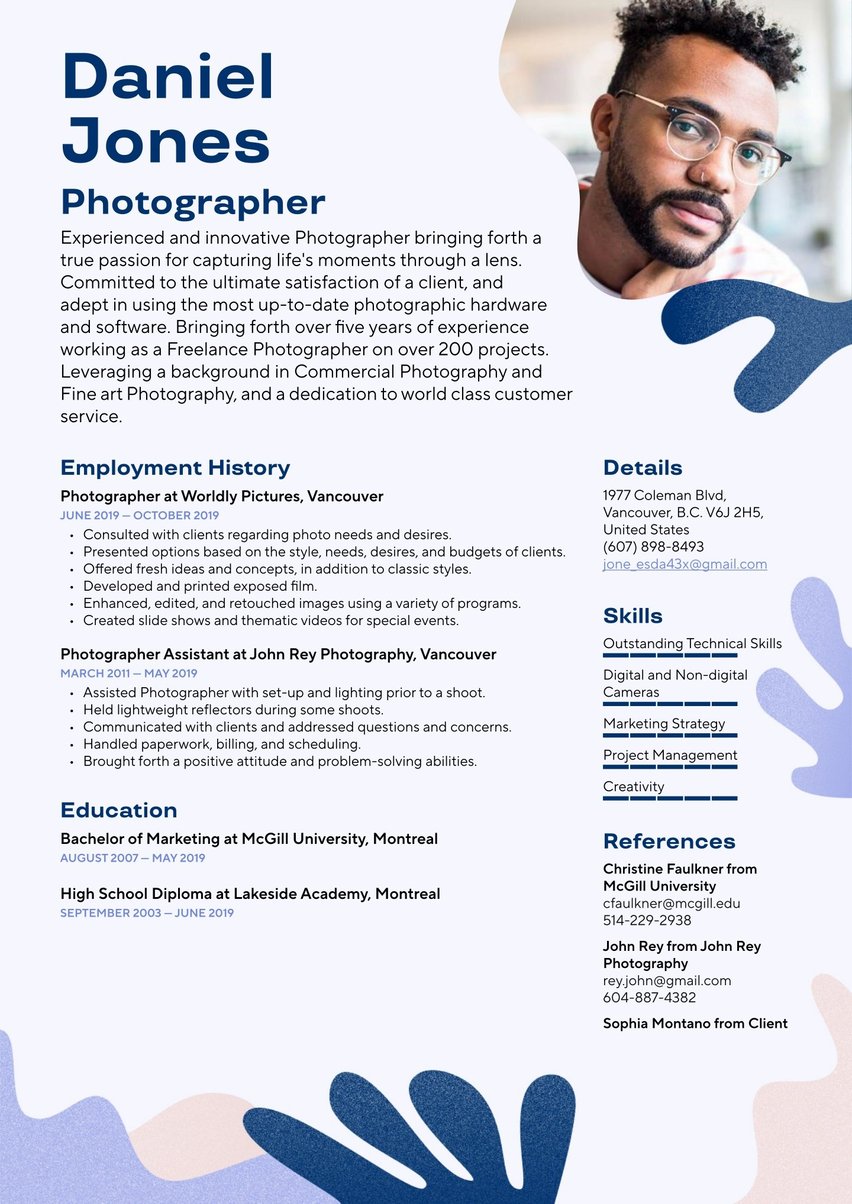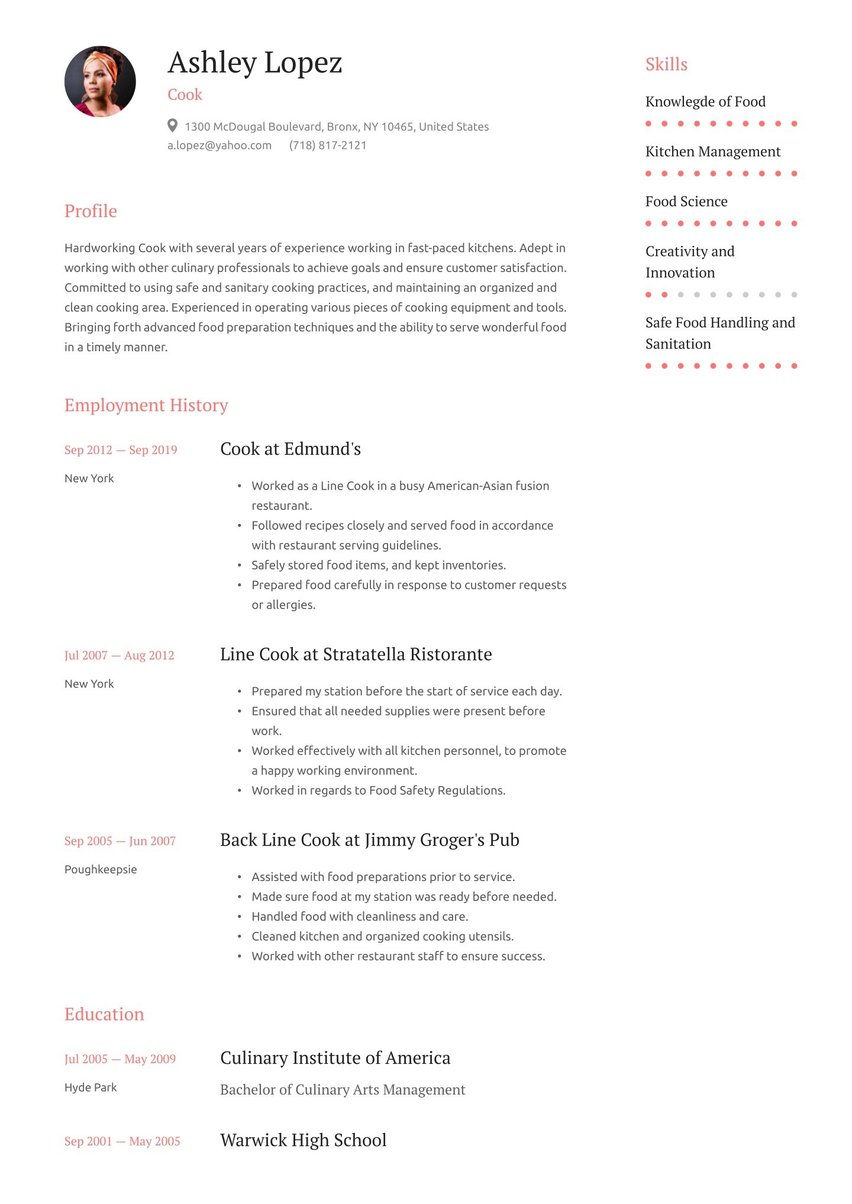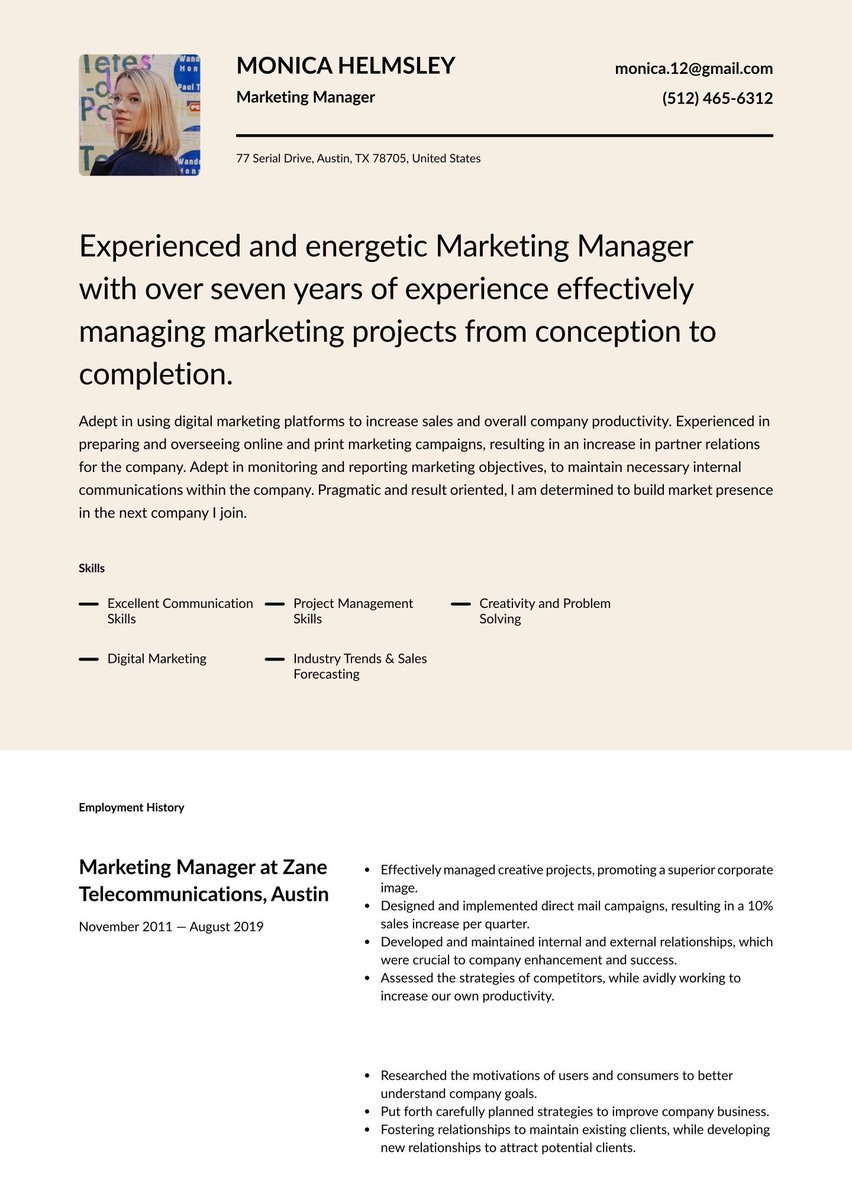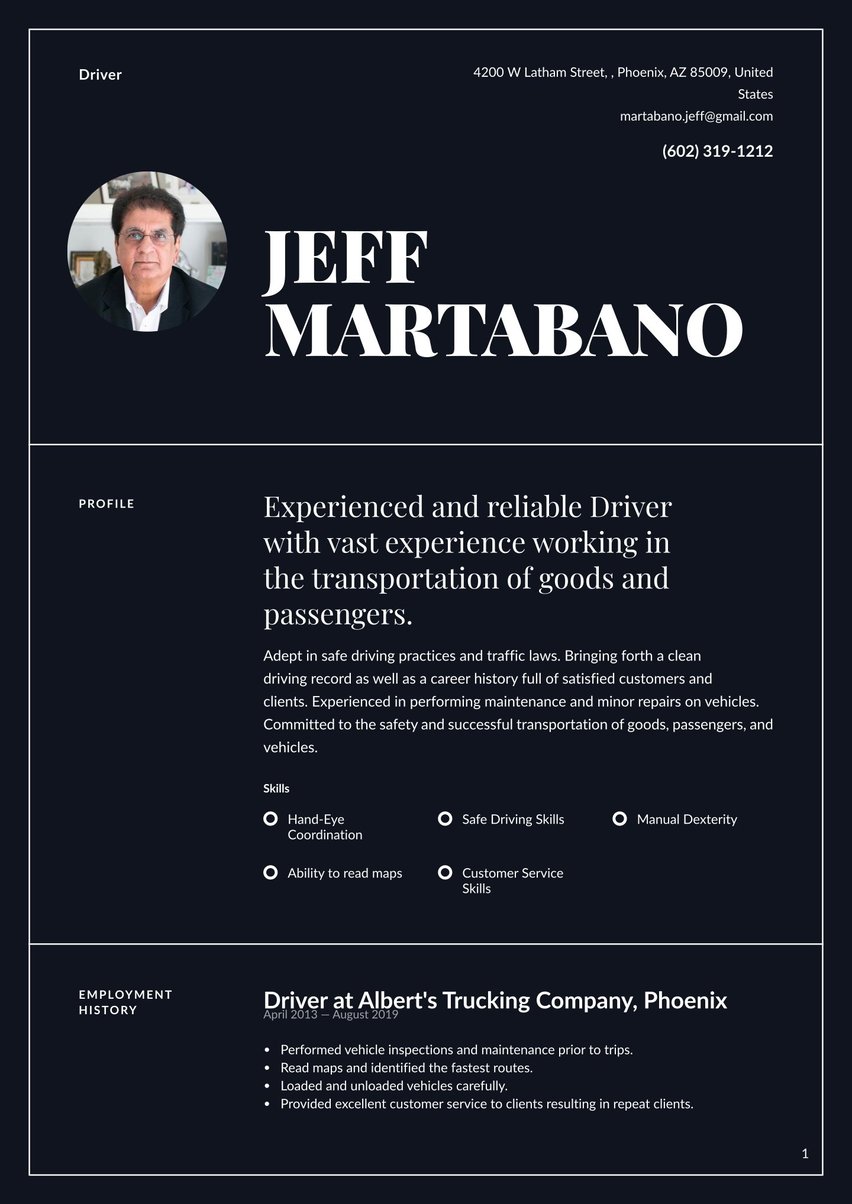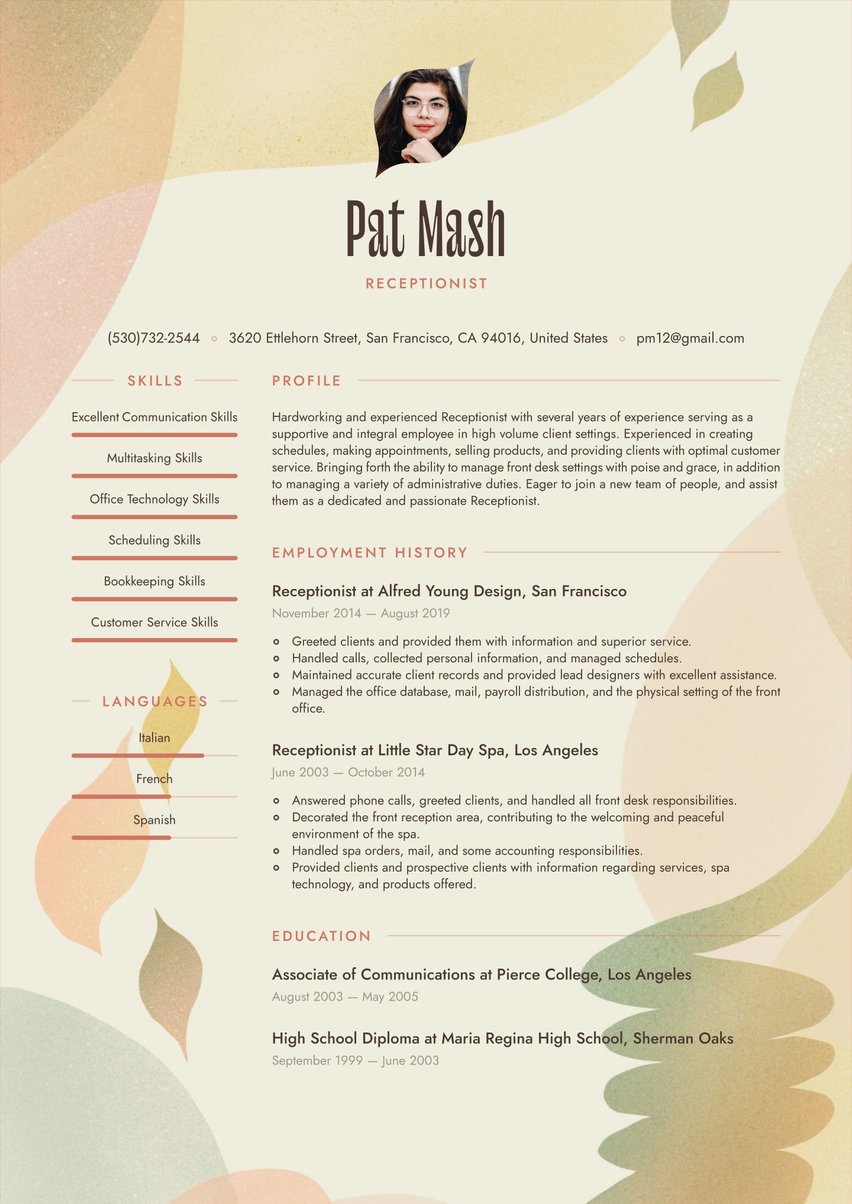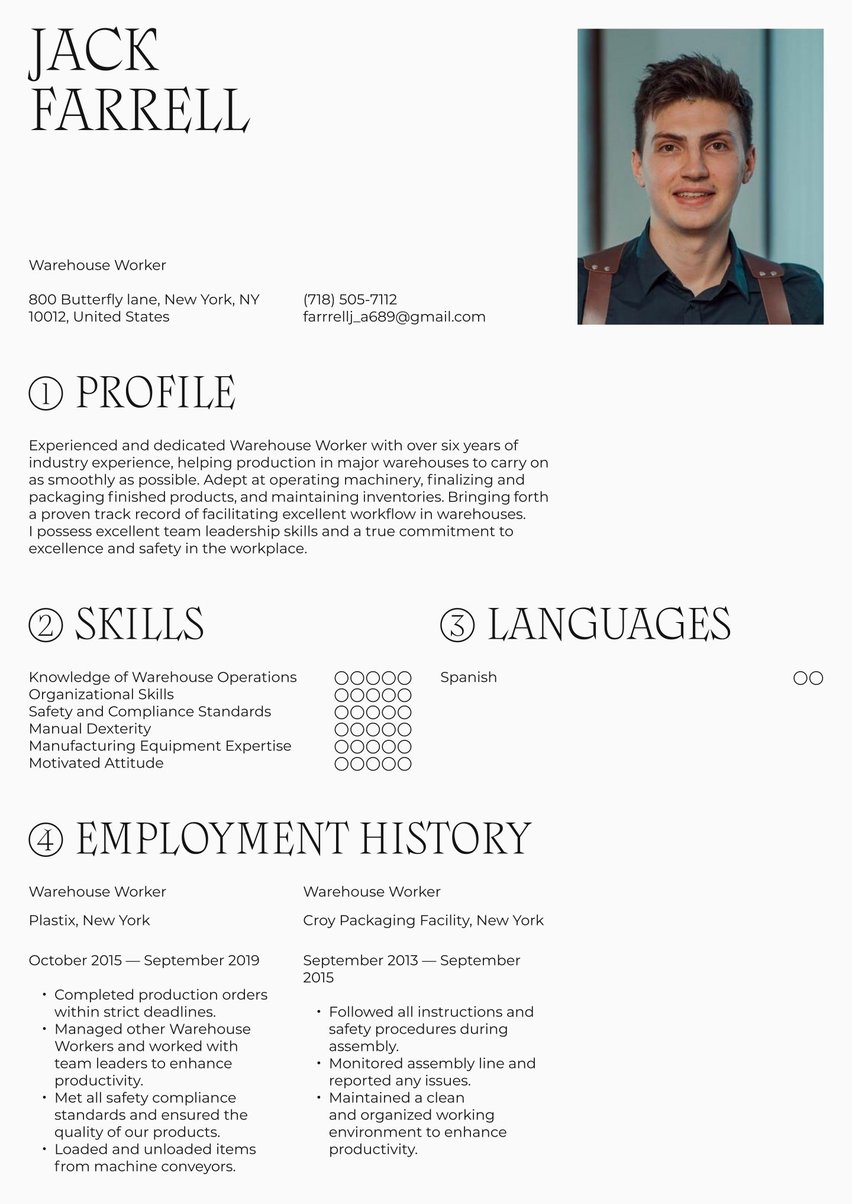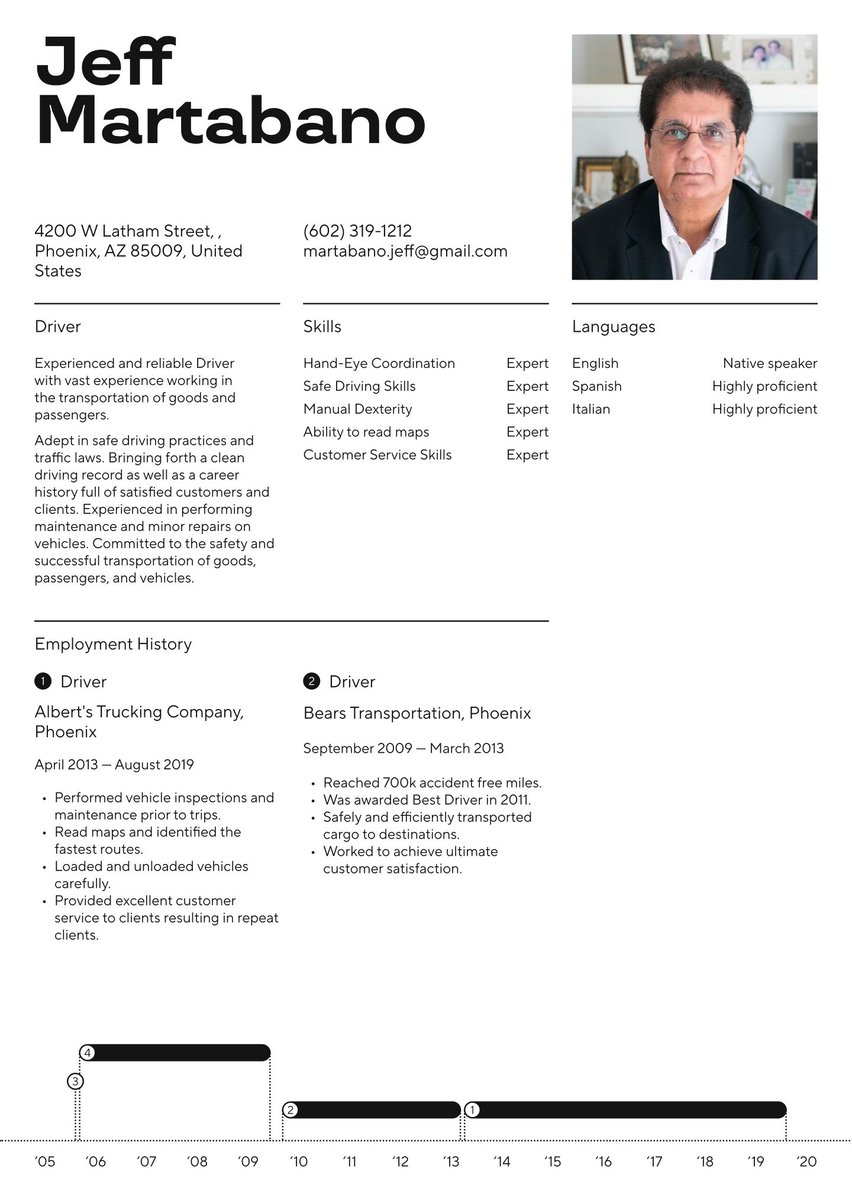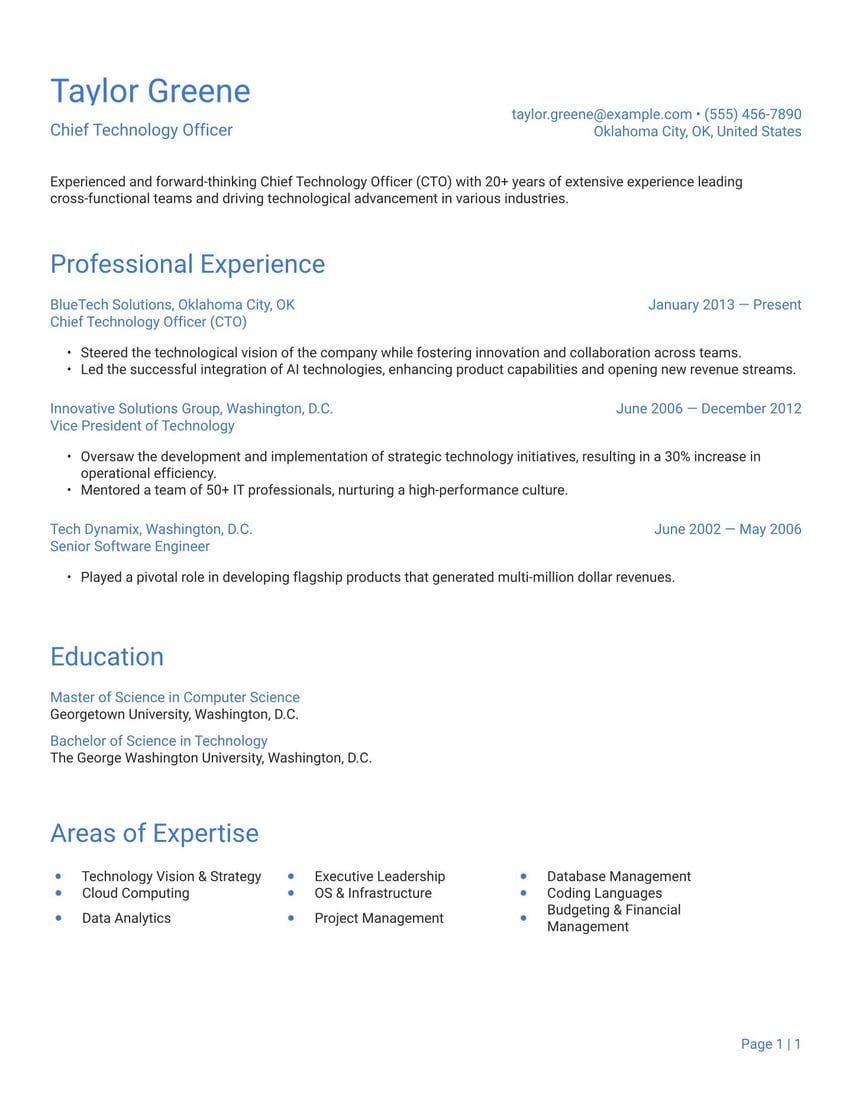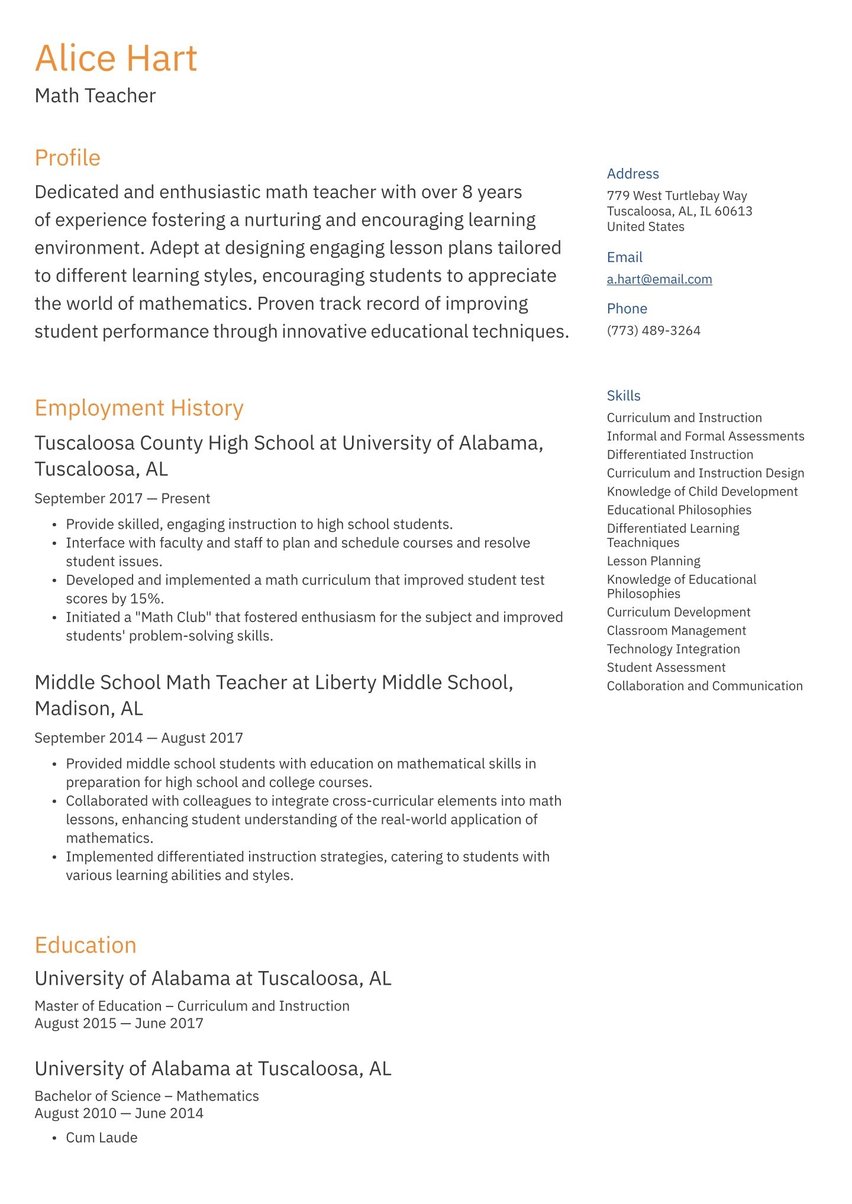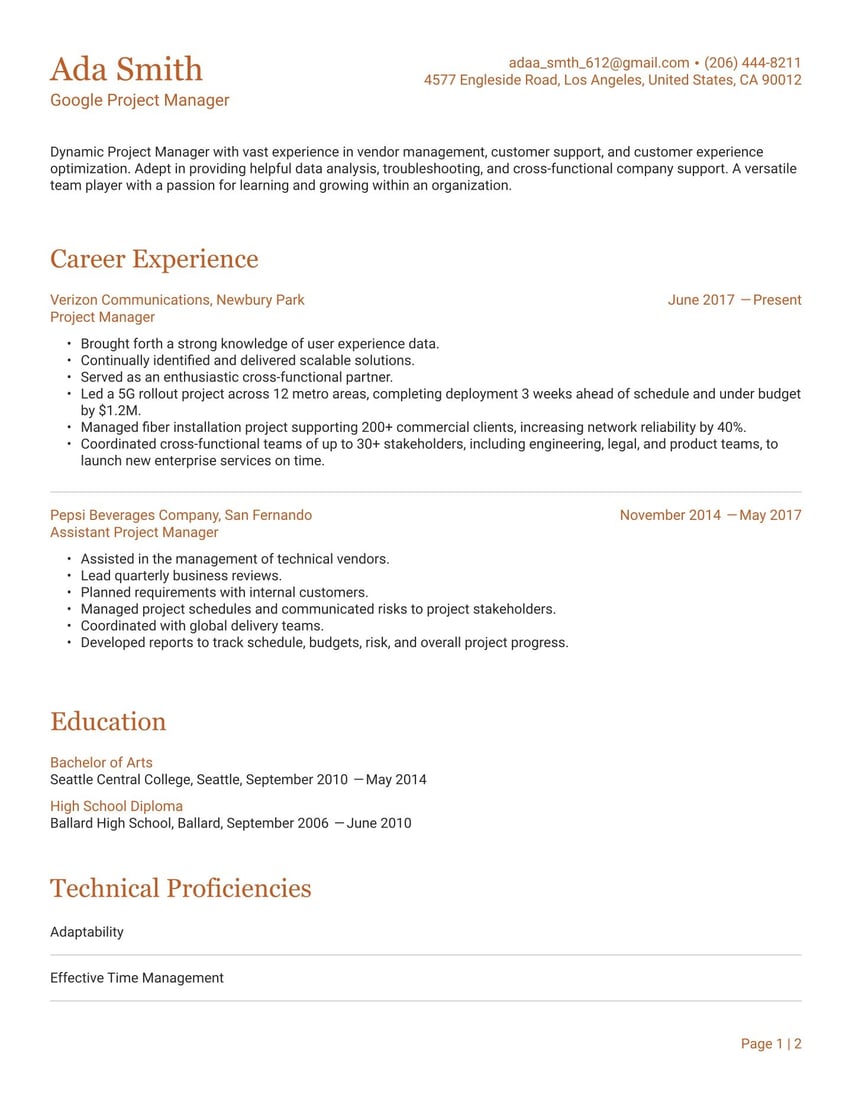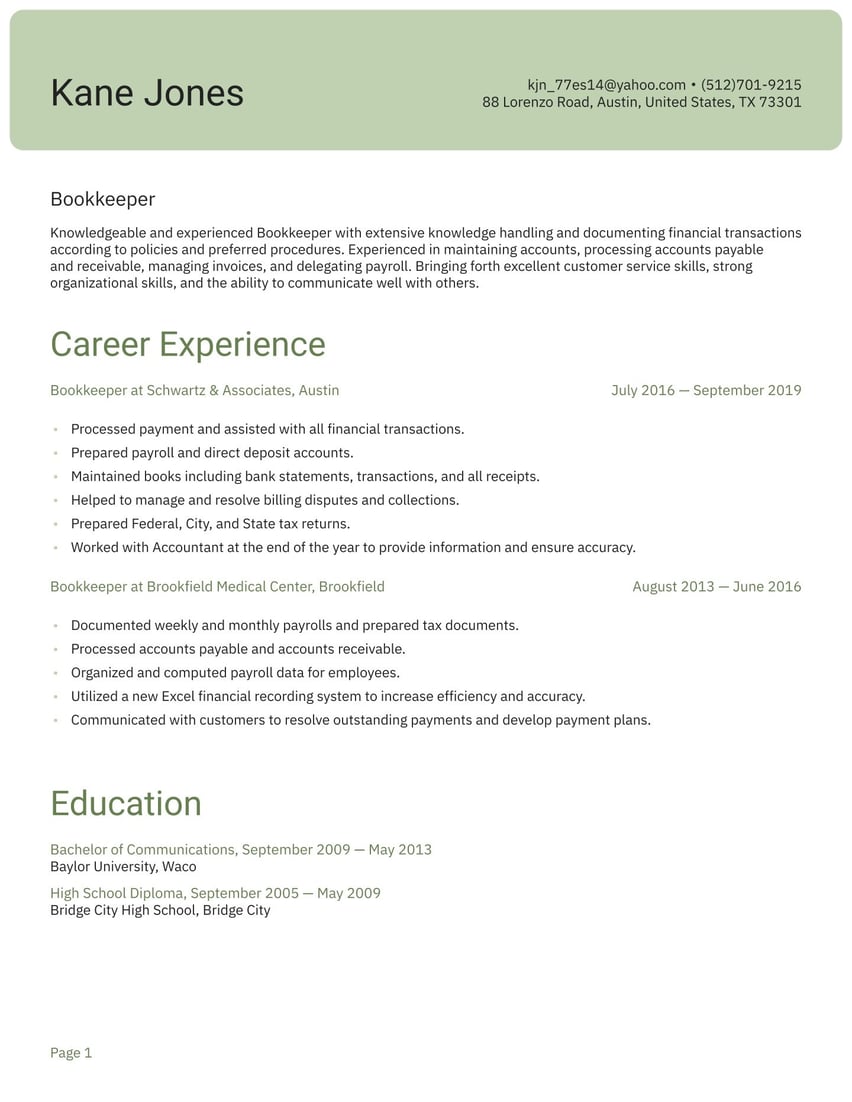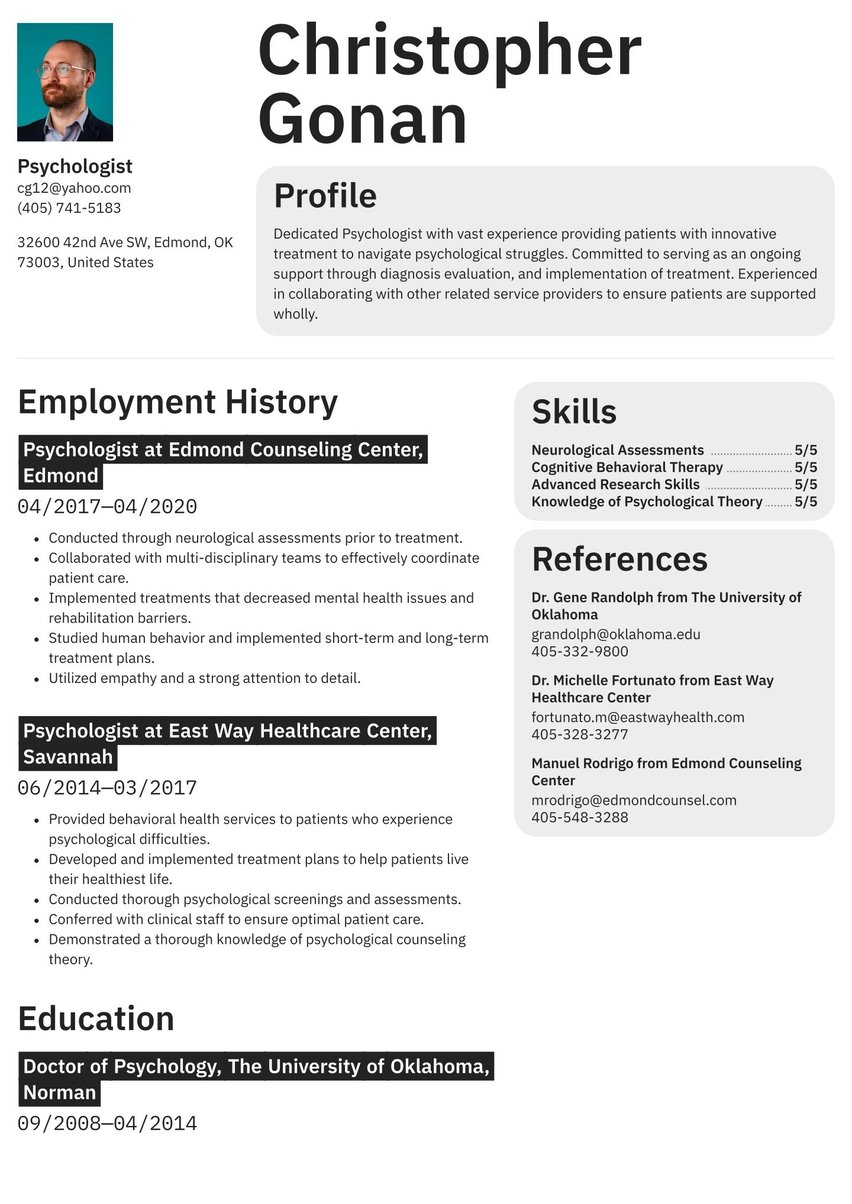Versatile musical theater performer with 7+ years of professional experience in Broadway, regional, and touring productions. Strong triple-threat abilities with exceptional vocal range (Tenor/Baritone), advanced dance training in multiple styles, and dramatic acting capabilities. Experienced in both ensemble and principal roles across various musical genres. Committed to bringing authenticity and emotional depth to every performance.
01/2022 - present, Hamilton, Richard Rodgers Theatre - Broadway, NY,
Ensemble/George Eacker (u/s Lafayette/Jefferson)
Director: Thomas Kail | Choreographer: Andy Blankenbuehler
03/2020 - 12/2021, Hadestown, National Tour,
Worker/Orpheus (u/s)
Director: Rachel Chavkin | Choreographer: David Neumann
Tour suspended March-August 2020 due to COVID-19
06/2019 - 02/2020, AIN'T TOO PROUD: THE LIFE AND TIMES OF THE TEMPTATIONS, Imperial Theatre - Broadway, NY,
Ensemble/Swing
Director: Des McAnuff | Choreographer: Sergio Trujillo
01/2012 - 01/2016, Bachelor of Fine Arts in Drama | New Music Theatre Studio, New York University - Tisch school of the arts,
ADDITIONAL TRAINING
Voice: Private study with Liz Caplan (2018-Present), Michael Ricciardone (2016-2018)
Dance: Broadway Dance Center - Advanced Jazz, Tap, Ballet (2016-Present)
Acting: Stella Adler Studio - Technique Intensive (Summer 2018)
Masterclasses: Audra McDonald (2022), Brian Stokes Mitchell (2021), LaChanze (2020)
- Vocal Range: Tenor/Baritone (A2-C5) with strong mix/belt
- Dance: Advanced Jazz
- Tap
- Ballet
- Hip-Hop
- Modern
- Accents: Standard British
- Cockney
- Southern
- Jamaican
- Instruments: Piano (Intermediate)
- Guitar (Basic)
- Drums (Basic)
- Combat: Stage Combat Certification - Unarmed and Rapier (SAFD)
- Athletics: Basketball
- Swimming
- Stage Acrobatics (Tumbling)
A musical theater resume needs to shine a spotlight on your talent and training. Before you even sing your first note at auditions, your resume can make an impression on directors, casting agents, and audition panels.
An outdated or improperly formatted resume can cause you to miss out on opportunities. But when your resume showcases all that you can do, you’re more likely to get the callback you deserve. Your musical theater resume should hit all the right notes, outlining your performance history, special skills, and professional training.
If you don’t feel as confident writing a resume as you do performing on stage, we’re here to help. We’ll show you how to prepare a musical theater resume that hits the mark and earns you a standing ovation.
Guide for a musical theater resume example
Put your job search center stage with resume.io. We offer guides and resume examples for over 500 occupations. With our easy-to-use resume builder, you can craft a show-stopping resume in minutes.
In this resume guide and corresponding musical theater resume example, we’ll discuss the following:
- How to write a musical theater resume
- The best resume format for musical theater
- Adding your contact information
- How to write a professional summary
- Highlighting your musical theater experience
- Listing your education and skills
- How to select the right resume layout and design
- What the musical theater job market looks like and how much you can earn
How to write a musical theater resume
Before the curtain rises on your next performance, your musical theater resume needs to set the stage with the following elements:
- A resume header
- A resume summary
- A work history section
- A resume skills section
- An education section
Your musical theater resume should provide directors and casting teams with an overview of your on-stage experience, professional training, and special skills. It needs to show decision makers why you’re worthy of an audition or callback.
Keep these tips in mind while writing your musical theater resume:
- Customize your resume to the role or company. A resume for a Disney musical, for example, should be notably different from a resume for The Phantom of the Opera. Adjust your resume to match the role’s demands or the theater company’s requirements.
- Focus on your experience. A musical theater resume should focus heavily on your credits in other productions. If you have extensive theater experience, showcase the performances that most closely match the new role you want to get.
- Choose a professional template. A clean, professional design keeps a director’s attention on your theater qualifications. You should also print your resume on high-quality paper if you’re taking copies to an audition.
- Incorporate keywords. Unlike traditional job applications, your musical theater resume probably won’t go through an applicant tracking system (ATS). Even so, it’s a good idea to include some keywords on your resume to show why you’re an excellent choice for the production.
Optimize your resume for success
Casting directors will look for certain key information on your resume to determine whether you’re right for the part. Review the casting call to identify some relevant keywords you can use on your resume.
For example, a casting call may include these qualifications:
- Versatile performer
- Classical vocal training
- Tap proficiency
- Passion for live performance
You can adjust your resume summary to include these keywords, like this:
Versatile musical theater performer with classical vocal training from the Curtis Institute of Music. Skilled in jazz and contemporary dance with tap proficiency and a passion for live performance.
For more tips, check out our article on resume ATS optimization.
Choosing the right format for a musical theater resume
Your resume needs to hit the right notes, and that starts with choosing the best resume format. For most musical theater professionals, a reverse-chronological resume will work best to showcase your musical theater experience. It shows casting directors your performance history and progression in the industry.
However, for a musical theater resume, you don’t necessarily need to list your past roles in chronological order. You can instead place your most prominent or relevant roles at the top.
If you’re returning to the stage after some time away, a functional resume format may work better for you. This format focuses more on your skills and training, drawing less attention to gaps in your performance history.
Some theater professionals may also benefit from a combination resume, also known as a hybrid resume. A combination resume puts an equal spotlight on your past credits and skills. It can be a good option if you’re just beginning your professional career and want to showcase student productions or community theater experience.
For more inspiration, browse our resume examples to see the three different formatting options. You can also choose the right one for you from the resume templates we offer in our resume builder.
Include your contact information
Directors and casting teams often move quickly, and need to know how to reach you if they want to schedule an audition or callback. This means having a clear and visible resume header at the top of your resume.
Include the following information in your header:
- Full name and title. Provide your full name or your stage name, if applicable. Include your title, such as “Musical Theater Performer.”
- Contact information. Provide a professional email address and phone number where directors can contact you. If you have an agent representing you, provide their contact information as well.
- Location. Include your city and state. Never provide your full mailing address. If you’re comfortable with relocating for a role or a tour, write “ Willing to relocate.”
- Website or digital portfolio. If you have a website with vocal recordings or performance clips, include a link to it in your resume header.
Don’t include the following:
- Date of birth. It’s not required to share your date of birth, so leave it off of your resume.
- Private information. Don’t provide your Social Security number, passport number, or other private information on your resume.
- Headshot. In most cases, you should attach a headshot separately. If you need to fill space on your resume, however, you can include a small version of your headshot in the header.
Sarah Smith
Musical Theater Performer
sarah.smith@email.com
(312) 555-0198
New York, NY
Represented by Creative Artists Agency, contact@talentemail.com
Sarah Smith
Future Broadway Star!
jazzhands9904@email.com
(312) 555-0198
123 Broadway Boulevard, NYC
DOB: 5/12/1995
Married
Write a professional summary
Like the opening notes of a production, a professional summary sets the tone for your musical theater resume. It’s your chance to convince a casting director that you have the right mix of talent, charisma, and experience for the role.
In two to three sentences, highlight the unique strengths and qualities that make you stand out as a performer. Think of your 30-second elevator pitch and capture the same energy in your professional summary. Use this space to showcase your vocal range, technical proficiencies, or most impressive roles.
Write your professional summary in the past or present tense, and use strong action verbs to describe your performance style or stage presence. For example, you may write that you’ve “thrilled audiences” or “delivered emotional performances.”
Don’t repeat the information you’ve listed elsewhere on your resume, such as recapping your past credits. Instead, focus on what you’ve contributed to past productions and what you can bring to the new role. Explain why a director should cast you instead of other performers vying for the part.
Want some more inspiration? Review these related resumes:
Check out some adaptable musical theater resume summary examples below:
Energetic and driven musical theater performer with a BFA in musical theatre from Drake University. Known for expressive acting and the ability to connect emotionally with audiences. Mezzo-soprano voice with a strong background in ballet and contemporary dance.
Versatile musical theater performer with 7+ years of professional experience in Broadway, regional, and touring productions. Strong triple-threat abilities with exceptional vocal range (Tenor/Baritone), advanced dance training in multiple styles, and dramatic acting capabilities. Experienced in both ensemble and principal roles across various musical genres. Committed to bringing authenticity and emotional depth to every performance.
Award-winning musical theater performer with 10+ years of professional experience on national tours and regional stages. Impressive vocal control with a powerful baritone range. Passionate about exploring human experiences to bring authenticity and depth to every role. Skilled in dramatic productions with over 15 awards for a commanding stage presence.
Outline your musical theater work experience: take a bow
In your resume work experience section, list your past credits in other productions. Many performers title this section “Credits” instead of “Work Experience.”
Include all of your relevant productions from the past 10 to 15 years. For each credit on your resume, list the production, your role, the theater or company, and the dates performed. You may also include optional information, such as the director or choreographer. You never know when a mutual connection may lead to your next performance.
If you’ve steadily advanced in your career, you can list your past productions in reverse-chronological order. For example, use this format if you’ve made the move from an ensemble member to leading roles. Start with your most recent production on top and work backwards.
In other cases, however, you may want to list your most relevant or award-winning roles at the top, so that they immediately catch a director’s eye. If you have many credits in different areas, such as theater and film, you can also list them in separate categories. That’s a good option if you want to show a casting team your versatility or range.
Unlike a resume for a corporate job, your musical theater resume doesn’t need to have bullet points describing your past experience. Stick to the basic details that casting teams will expect to see on your resume.
Check out the example of a musical theater resume work experience section below:
Hamilton at Richard Rodgers Theatre - Broadway, NY
January 2022 - Present
- Ensemble/George Eacker (u/s Lafayette/Jefferson)
- Director: Thomas Kail | Choreographer: Andy Blankenbuehler
Hadestown at National Tour
March 2020 - December 2021
- Worker/Orpheus (u/s)
- Director: Rachel Chavkin | Choreographer: David Neumann
- Tour suspended March-August 2020 due to COVID-19
AIN'T TOO PROUD: THE LIFE AND TIMES OF THE TEMPTATIONS at Imperial Theatre - Broadway, NY
June 2019 - February 2020
- Ensemble/Swing
- Director: Des McAnuff | Choreographer: Sergio Trujillo
How to write a musical theater resume with no experience
If you haven’t landed your first professional role yet, don’t stress. Your first professional resume can still impress directors and agents, even with limited credits to your name.
If you’re just beginning your career in musical theater, focus on your related performance experience, such as school productions or conservatory showcases. List these roles the same way you’d list professional credits, including the production name, your role, and the dates performed.
Your resume should also emphasize your training, such as vocal studies, dance intensives, or acting lessons. Include any workshops or master classes you’ve completed. These credentials show you’re committed to your craft and willing to work hard to succeed.
Most importantly, when preparing for your first auditions, remember that everyone starts somewhere. Be confident and show audition panels your passion, talent, and readiness for the stage.
Include relevant skills for a musical theater resume
When you’re part of a production, you bring a range of skills you’ve gained throughout your career. Your resume skills section is the place to show off your talents and capabilities.
This section should focus heavily on the hard skills you’ve sharpened as a performer. These might include your vocal range, dialects, dance proficiencies, and sight-reading ability. A casting team or production company will consider these skills in deciding whether you’re right for a part.
You can also include a few soft skills as well. These are the interpersonal traits you use to collaborate with other performers, directors, and crew. Your soft skills may include adaptability, communication, and emotional intelligence.
When creating your skills section in our resume builder, you can choose from pre-written skills for a musical theater resume. You can also select your proficiency level for each skill.
Here’s what the skills section looks like in our musical theater resume example:
- Vocal range: Tenor/baritone (A2–C5) with strong mix/belt
- Dance: Advanced jazz, tap, ballet, hip-hop, modern
- Accents: Standard British, Cockney, Southern, Jamaican
- Instruments: Piano (intermediate), guitar (basic), drums (basic)
- Combat: Stage combat SAFD SPT certifications in Unarmed and Rapier
- Athletics: Basketball, swimming, stage acrobatics (tumbling)
While you should have a dedicated section to showcase your skills, it’s not the only place where you can mention your strengths. In your professional summary, briefly discuss one or two of your most in-demand or unique skills to set your resume apart.
For example, if you’re skilled in stage combat, your summary can explain how you used this special skill in the choreography for another production.
Detail your education & relevant musical theater certifications
Decision makers will review your resume to see what professional training you have. List your formal education, such as a Bachelor of Arts in performing arts, at the top of this section. If you hold an advanced degree, put it above your bachelor’s.
Your education section should also include other relevant training you’ve completed. These qualifications show that you’ve put in the time, effort, and discipline to become a master of your craft.
Some types of training you might list on your resume include:
- Vocal studies or master classes
- Dance training or intensives
- Drama classes or workshops
- Certifications you hold, such as stage combat
- Other relevant training, such as improv or instrumental lessons
When listing these qualifications, include the name of the school or institute where you studied and the dates. You can also include the instructors you’ve studied under, especially if they’re recognizable names in the industry.
Bachelor of Fine Arts in Drama | New Music Theatre Studio, New York University - Tisch school of the arts
2012 - 2016
ADDITIONAL TRAINING
- Voice: Private study with Liz Caplan (2018-Present), Michael Ricciardone (2016-2018)
- Dance: Broadway Dance Center - Advanced Jazz, Tap, Ballet (2016-Present)
- Acting: Stella Adler Studio - Technique Intensive (Summer 2018)
- Masterclasses: Audra McDonald (2022), Brian Stokes Mitchell (2021), LaChanze (2020)
Pick the right layout & design for a musical theater resume
Every detail matters in musical theater, from the lighting to the set design to the props. The same is true for your musical theater resume design and layout. It should be clean, organized, and polished, presenting you to casting teams in a positive light.
Use consistent formatting throughout your resume. Stick to a one- or two-column layout for simplicity. Choose a professional font, such as Arial or Calibri, in a font size that’s easy to read. Leave some white space between each section so that a director or agent can review your resume quickly.
Musical theater is a creative field, so it’s fine to incorporate some artistic details, such as a splash of color. Just make sure that you don’t take it too far. A visually cluttered design can distract from your experience and qualifications.
Your musical theater resume should fit onto one page, so that you can easily hand it to casting teams and audition panels. Remember that your resume doesn’t need to tell your whole story. It just needs to provide an overview of your relevant credits, training, and skills.
A well-designed resume may not land you the role on its own, but it can get you an audition. Build an audition-worthy resume using our optimized resume templates, designed for performers like you. We take care of the formatting and structure, so that you can focus on hitting the notes and nailing the choreography.
Musical theater job market & outlook
Musical theater is a highly competitive industry, but that doesn’t mean you can’t find work. The US Bureau of Labor Statistics (BLS) expects employment of actors, including theater performers, to increase 5% by 2033, which is in line with the projected growth of other occupations.
- There will be an average of about 8,600 job openings each year over the next decade, according to the BLS.
- As many as 79,500 actors could be working professionally by 2033.
What type of salary you can expect in musical theater
Musical theater performers often have fluctuating or unpredictable salaries. The money you earn can depend on many factors, including your role, the production schedule, and the theater or company.
The average salary of an actor or performer is currently $63,391 per year. This typically involves earning a weekly salary as the production runs.
Key takeaways for building a musical theater resume
A musical theater resume should do more than list your past performances. It should reflect your unique strengths, professional training, and dedication to the field. Your next role is waiting for you, but to get there, you need a resume that leaves a lasting impression—just like you do on the stage.
Start your job search with our resume builder, and then take it to the next level with resume.io.
We offer 18 powerful tools to help you search for musical theater jobs, track your progress, prepare for auditions, and negotiate salaries. It’s all part of our complete career toolkit.


